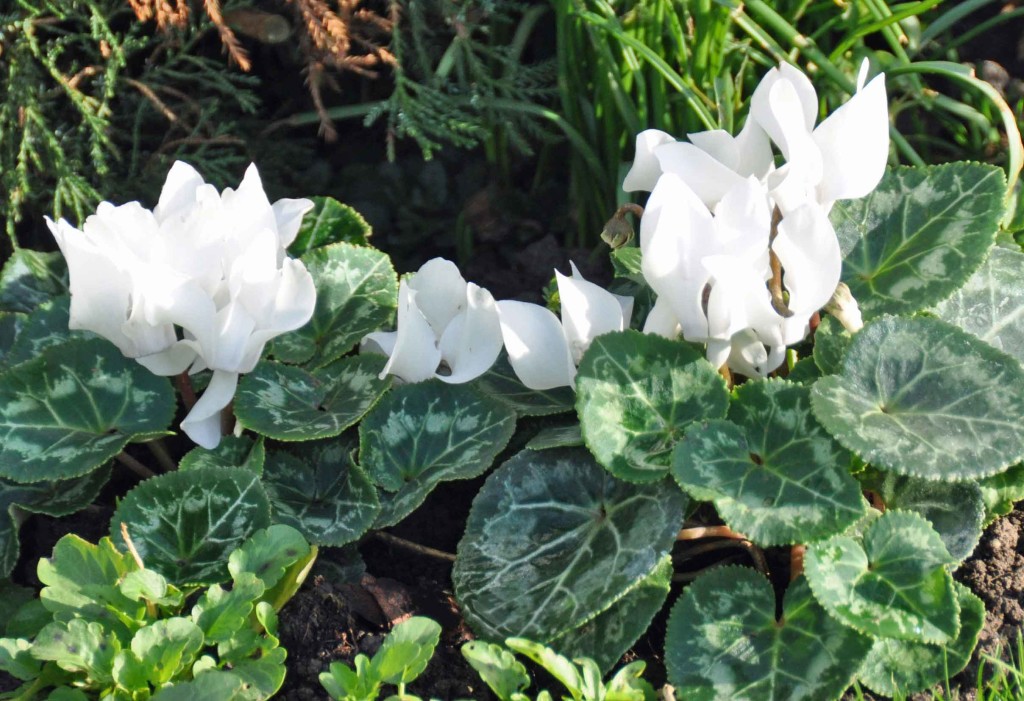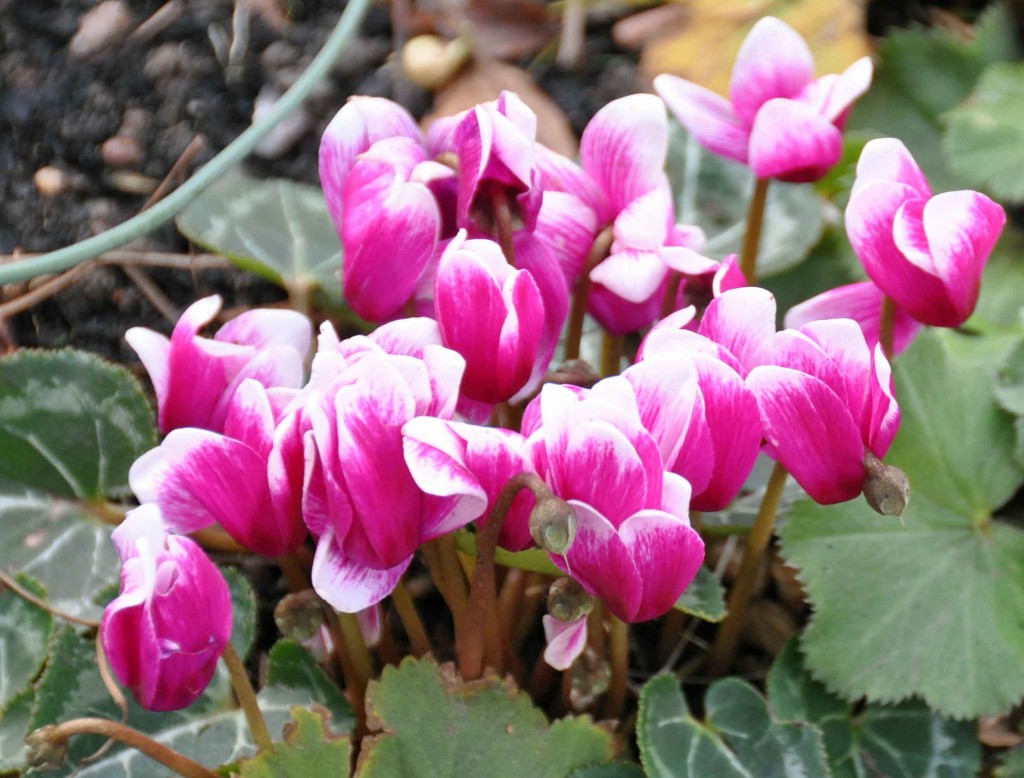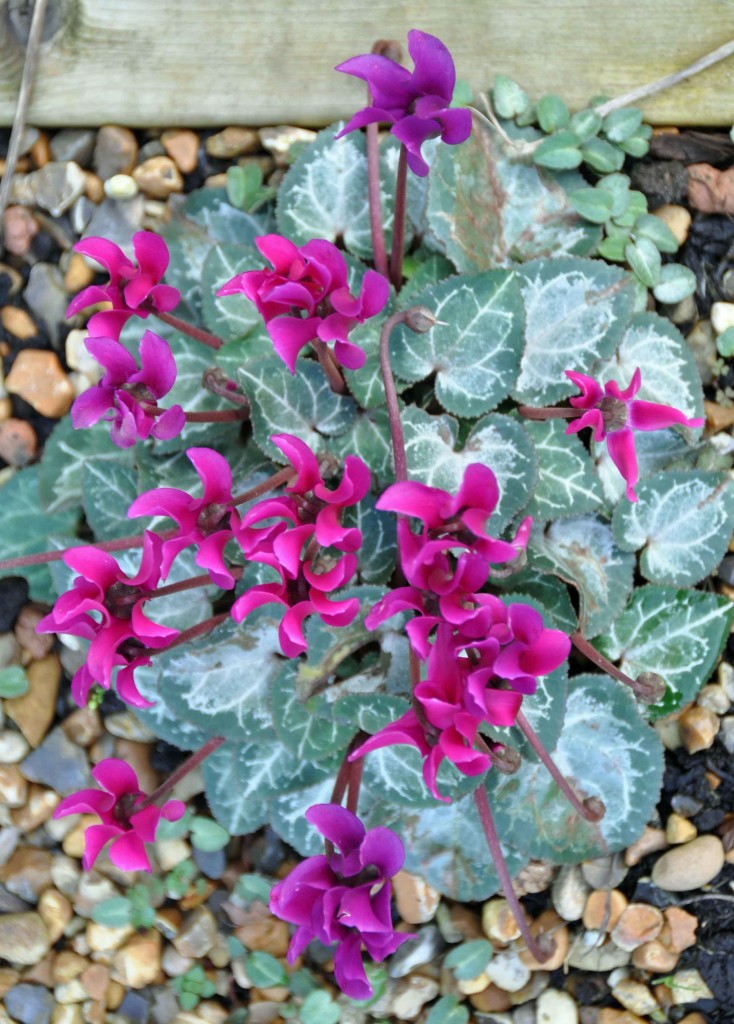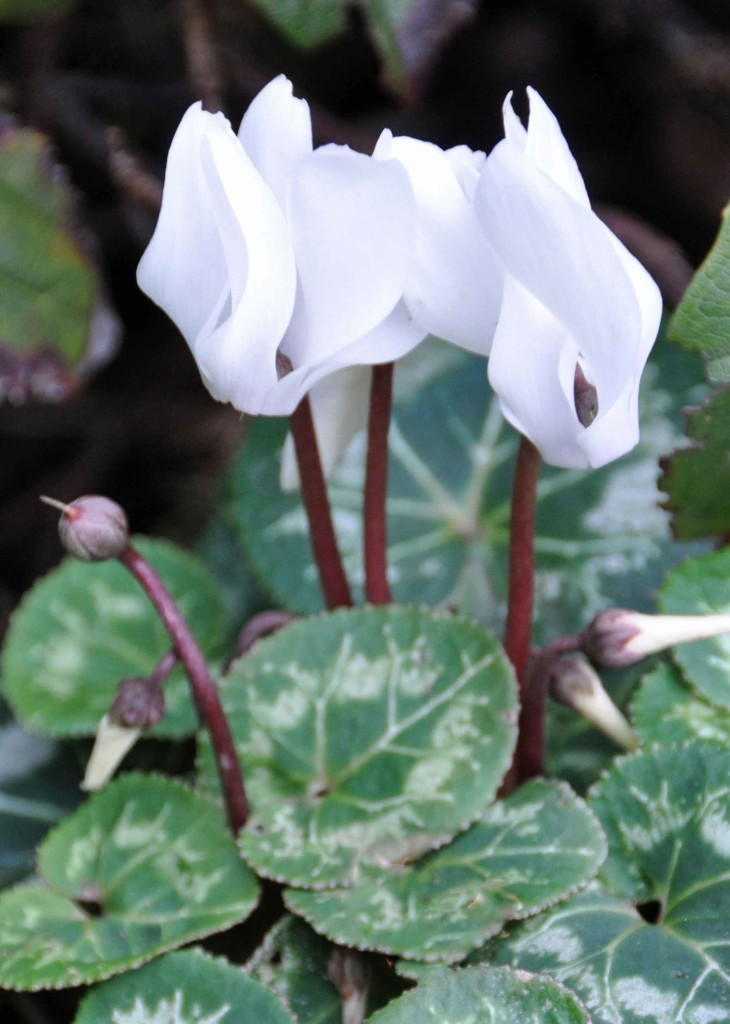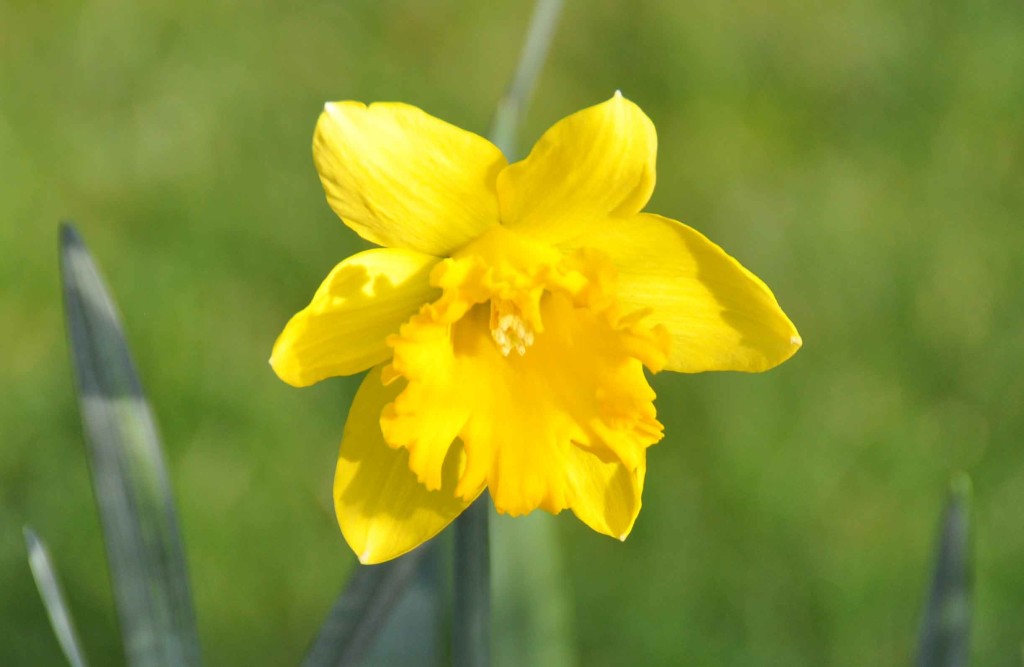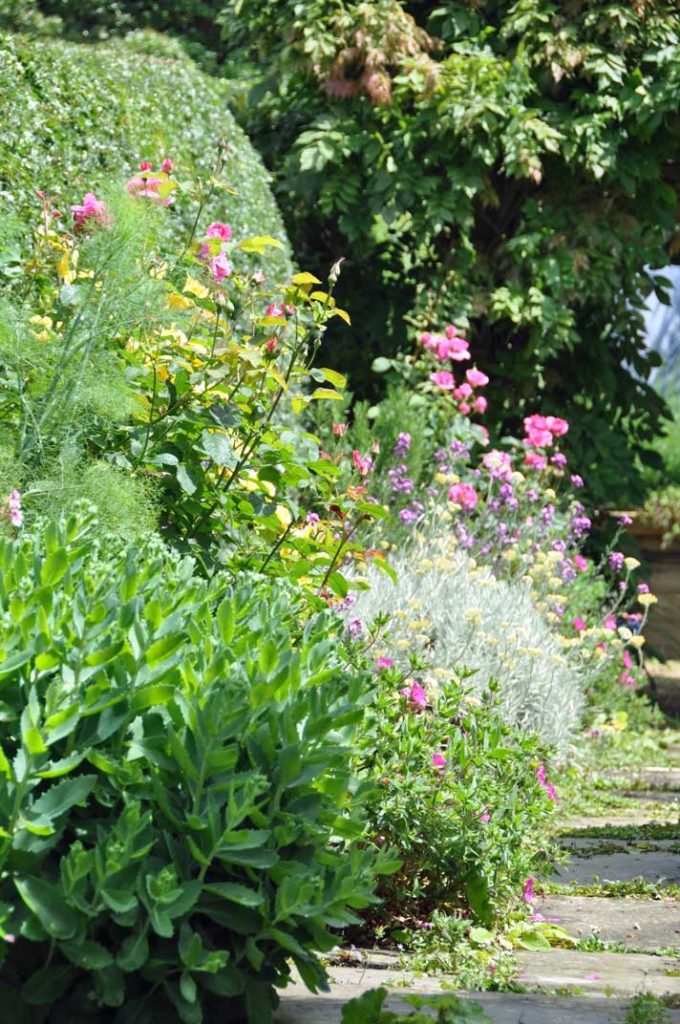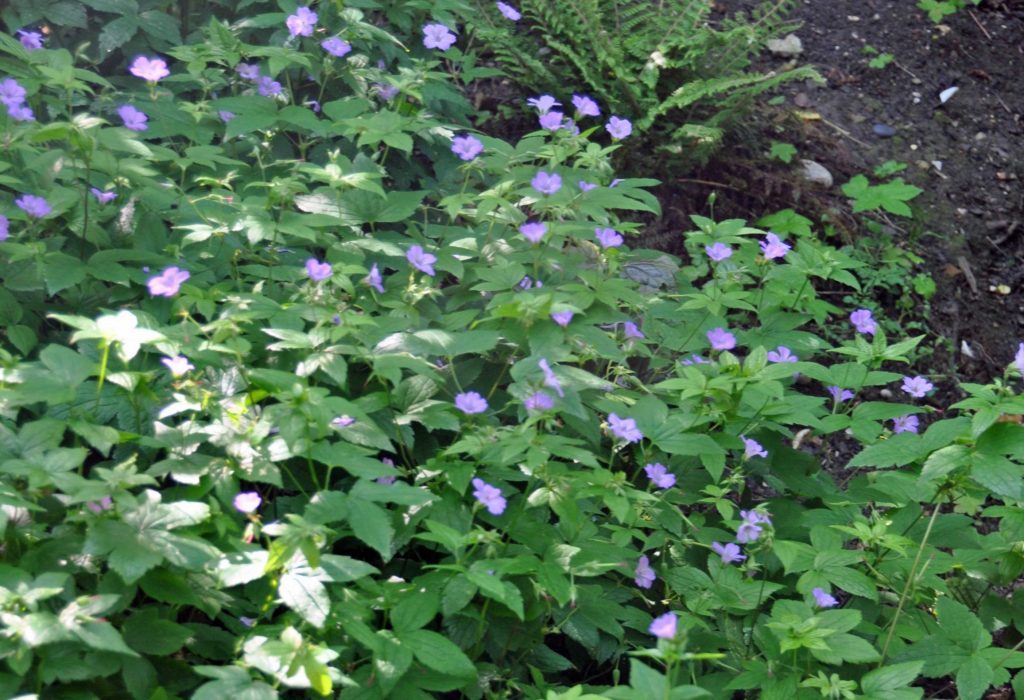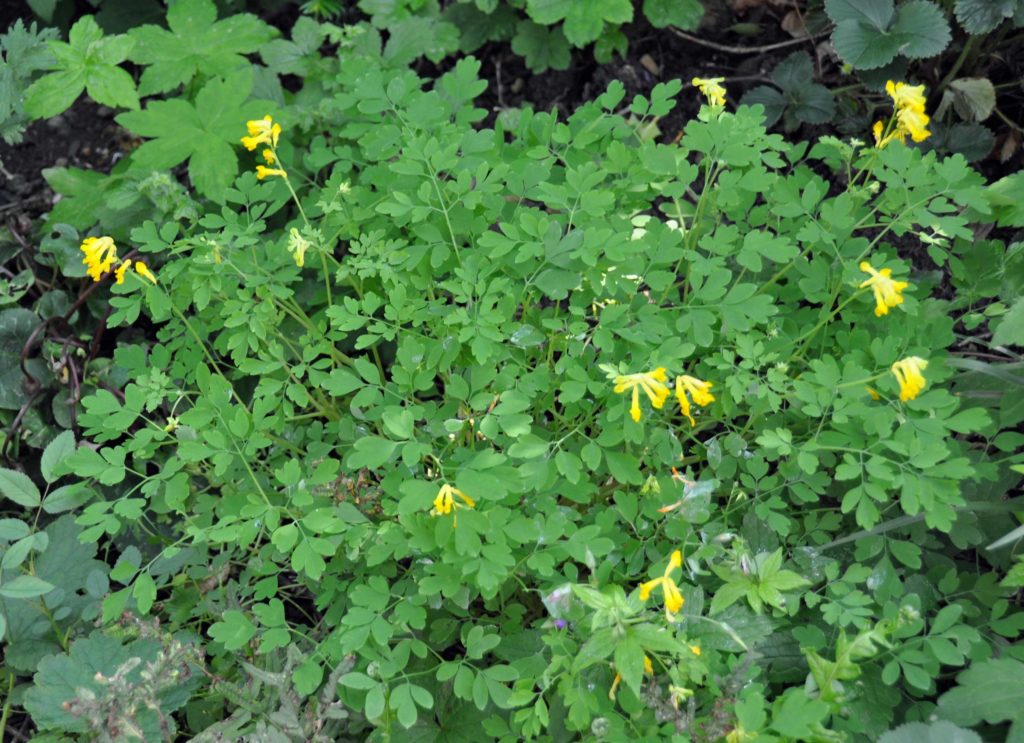January & February
The weather has been topsy turvy so far this year, and compared to last year far more flowers seem to be out.
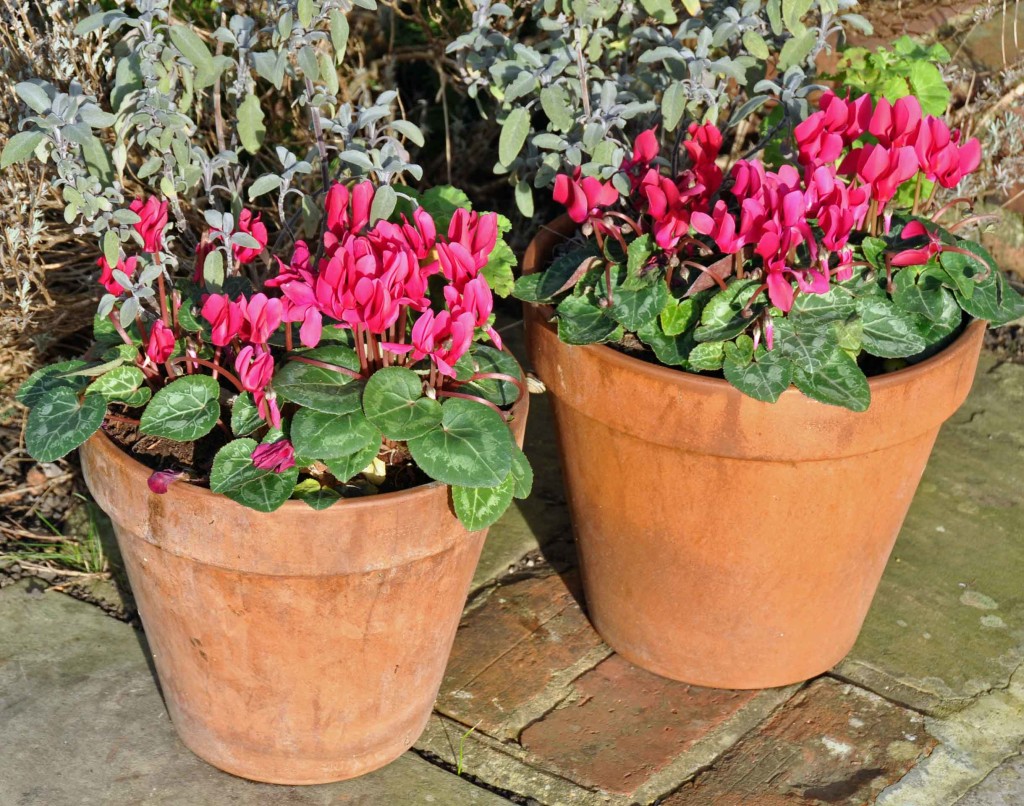 There are any number of cyclamen still flowering away as Winter bedding and the choice of white flowers last Autumn seems to have worked well.
There are any number of cyclamen still flowering away as Winter bedding and the choice of white flowers last Autumn seems to have worked well.
There is something almost abstract about the soft swirls of their flowers. I can never really understand how something that looks so delicate and exotic can be so very tough in the garden.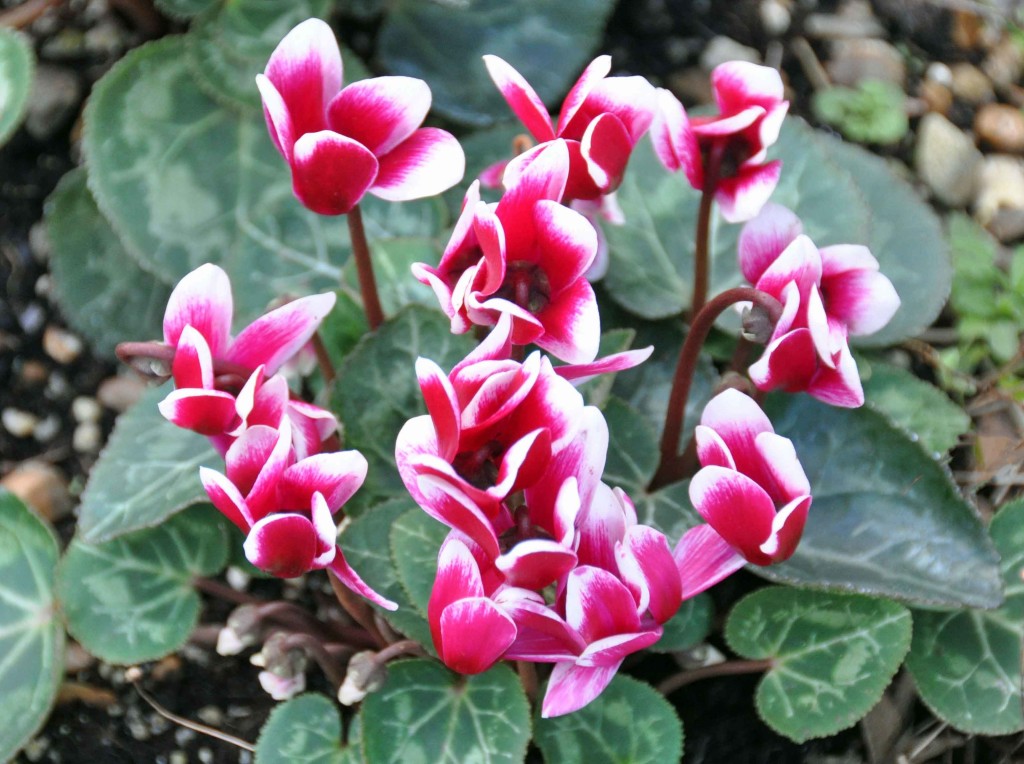
The white flowers really stand out against the greenery at the end and beginning of the year when nothing much else is about to liven up the borders.
My favourites are probably still the really vulgar fuschia pink flowers but maybe there’s hope for a more elegant white future. 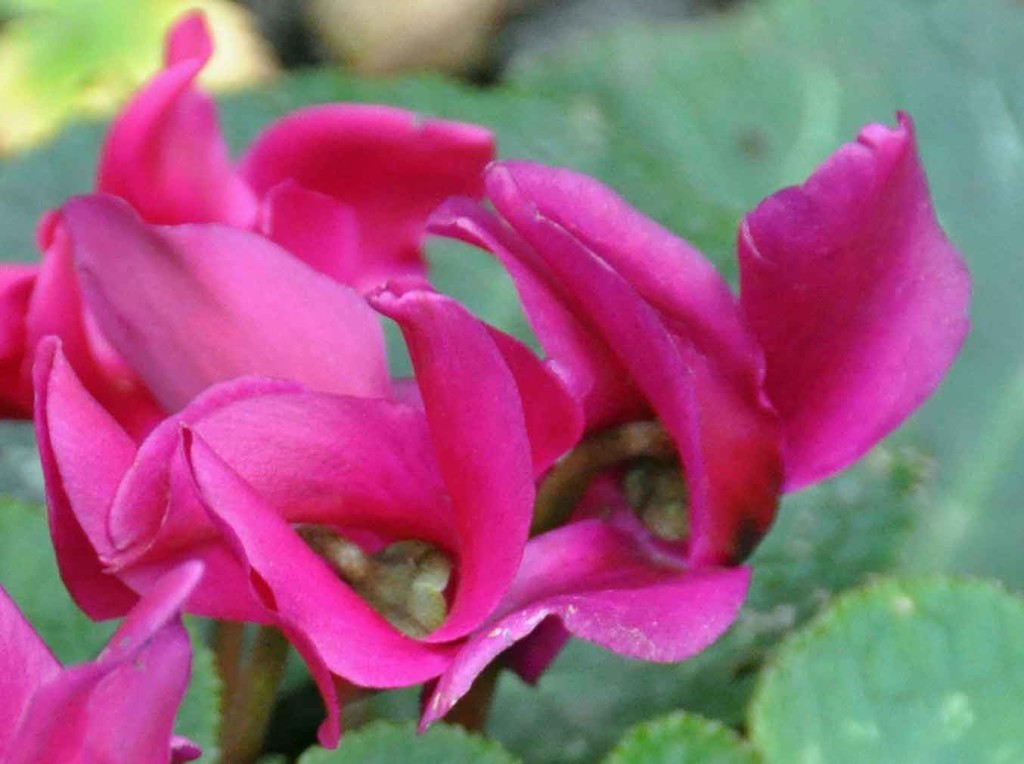
Or maybe we’ll just have to settle for half-way with the white dipped pink cyclamen.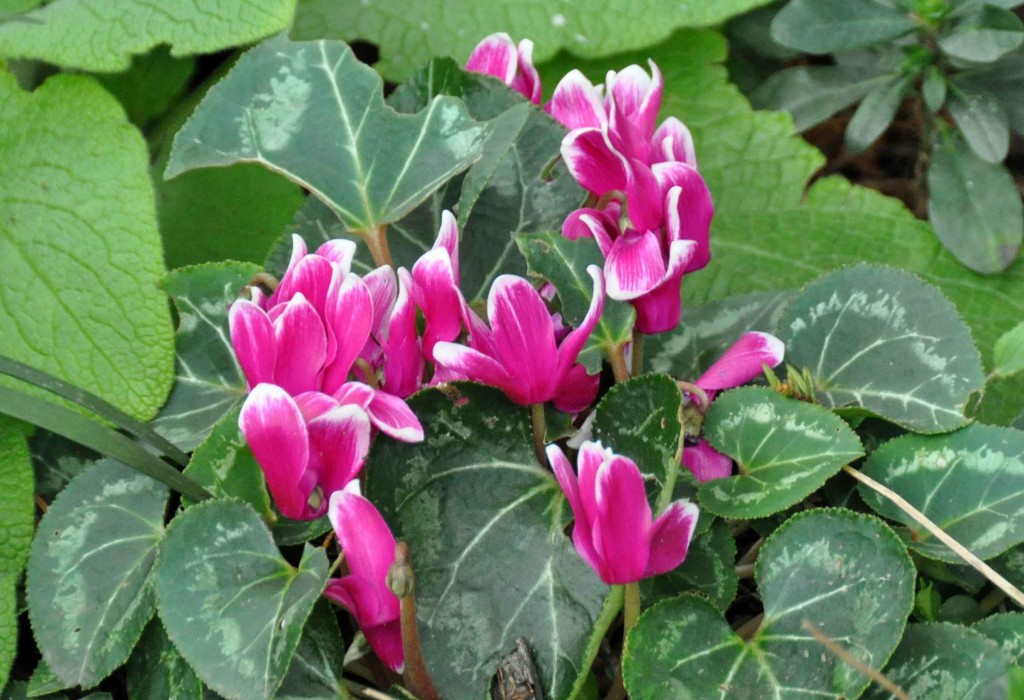 The hellebores are out and quite vigorous. I’m told that after a couple of years they can lose much of their strength but mine are still going strong.
The hellebores are out and quite vigorous. I’m told that after a couple of years they can lose much of their strength but mine are still going strong.
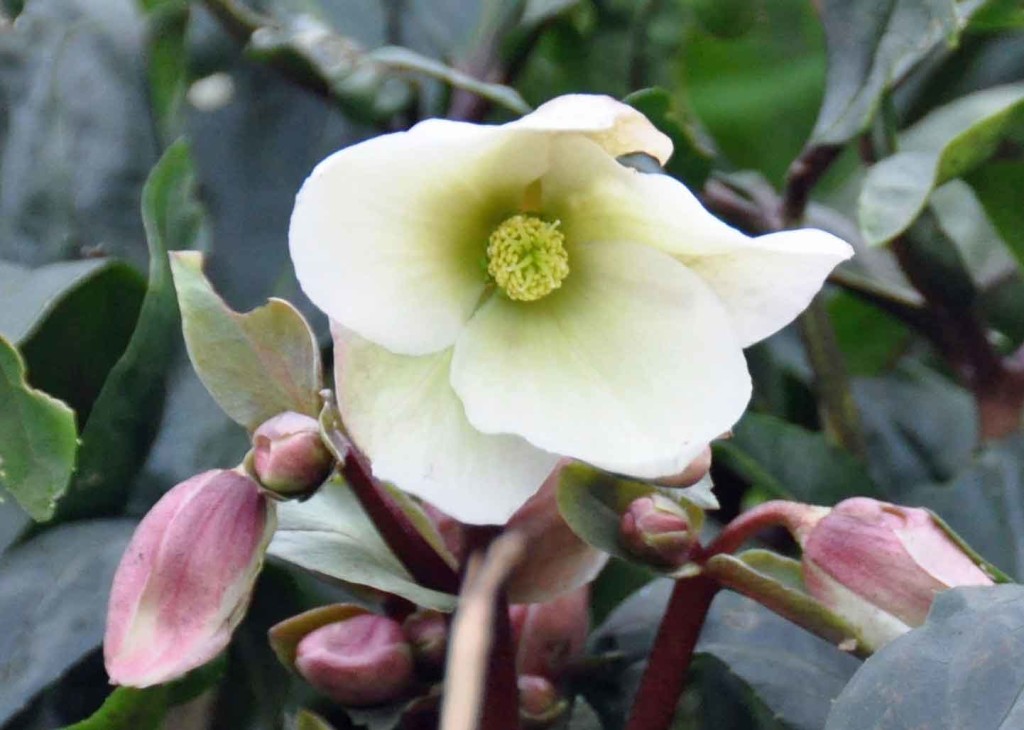 The pinks are perhaps the most pretty but their faces look down so you have to grow them on top of a bank. From my kitchen window, I look up at them smiling down from above a retaining wall, and they make me want to smile back.
The pinks are perhaps the most pretty but their faces look down so you have to grow them on top of a bank. From my kitchen window, I look up at them smiling down from above a retaining wall, and they make me want to smile back.
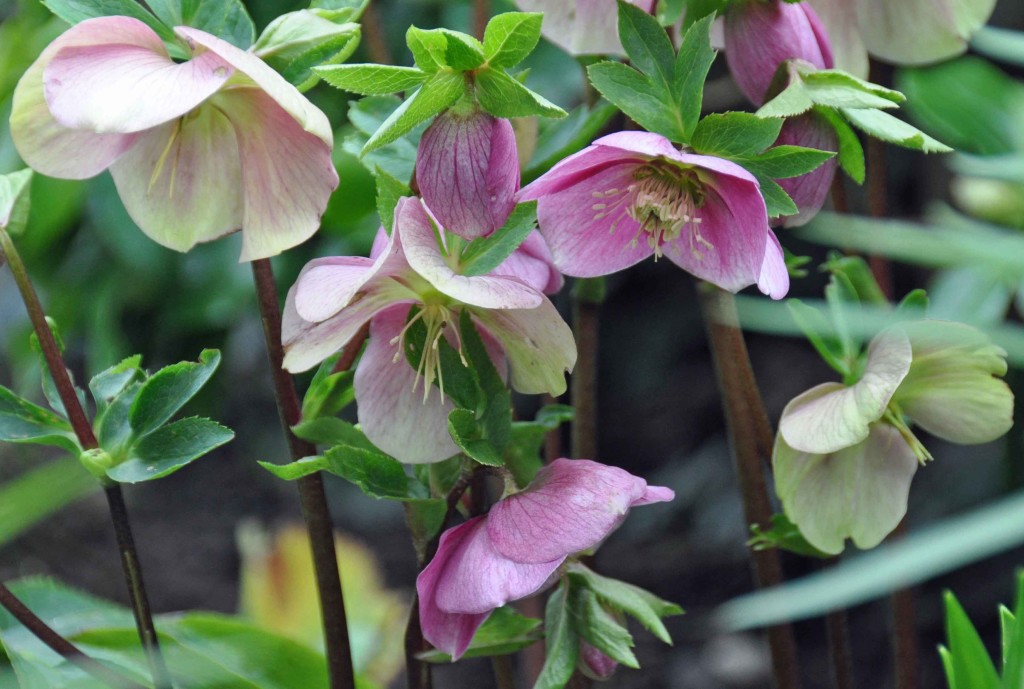 The shady garden is also the warmest part of the garden and the flowers are out in force. For a change, it’s also quite wet, almost boggy in part so things are really starting to put out new leaves and new growth.
The shady garden is also the warmest part of the garden and the flowers are out in force. For a change, it’s also quite wet, almost boggy in part so things are really starting to put out new leaves and new growth. 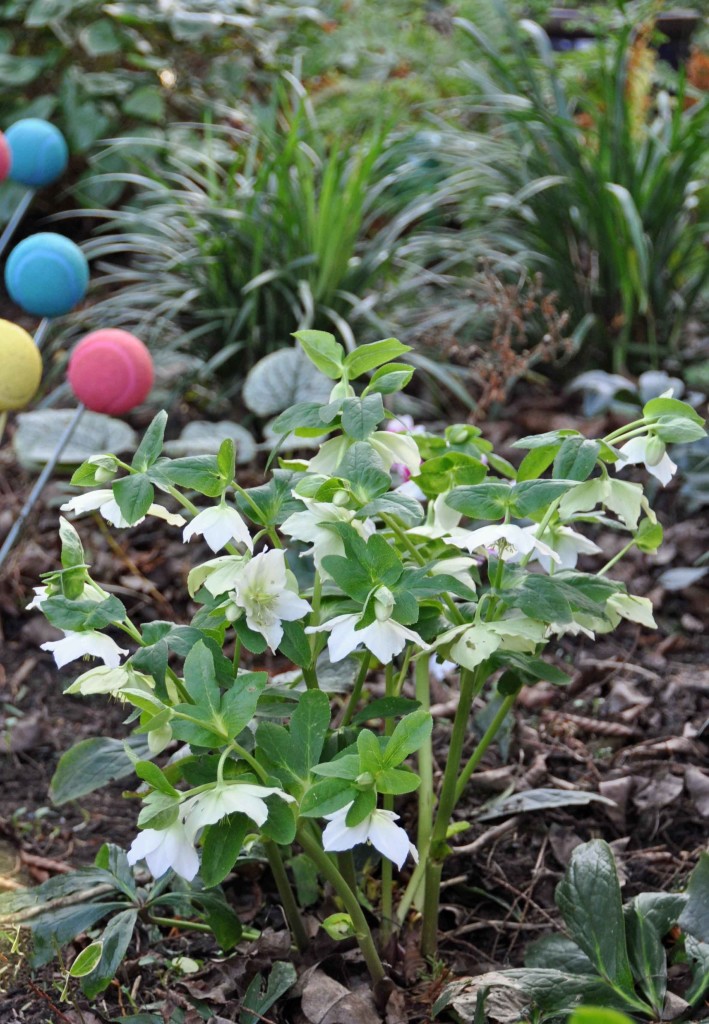 The white flowers are looking really bright, standing out in the shade.
The white flowers are looking really bright, standing out in the shade. 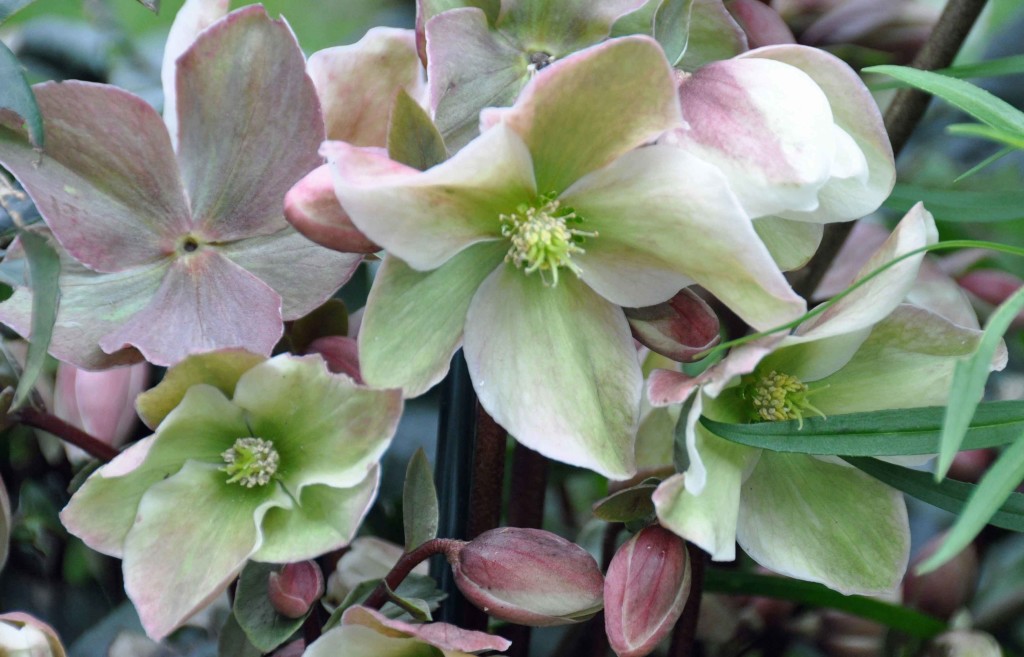
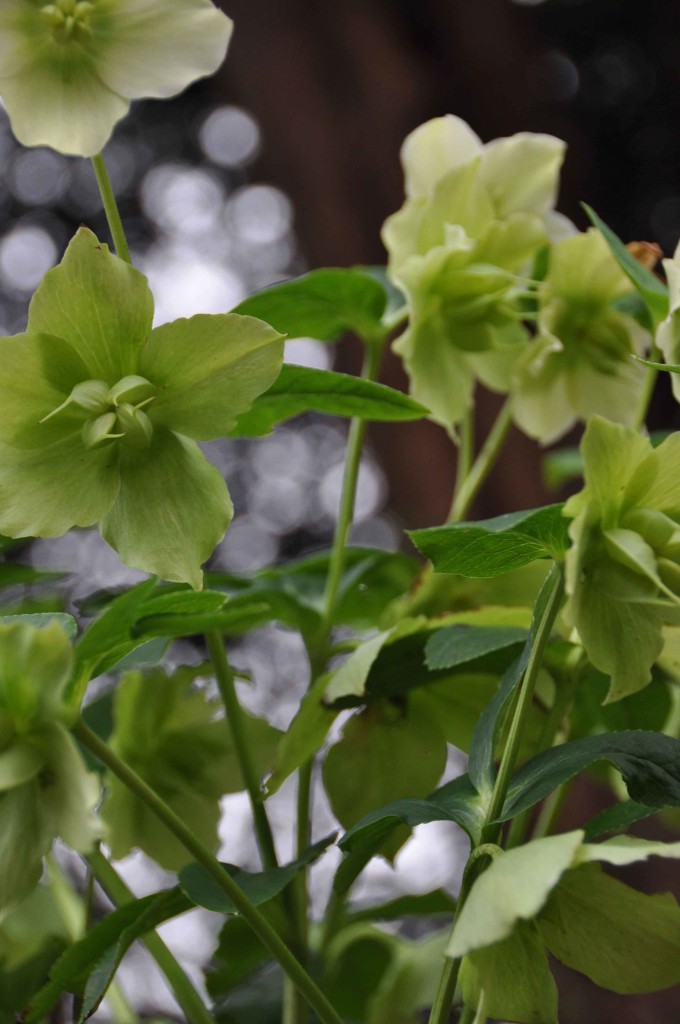 The daffodils are out in the main beds and in the shallow gravel garden on the flat roof.
The daffodils are out in the main beds and in the shallow gravel garden on the flat roof.
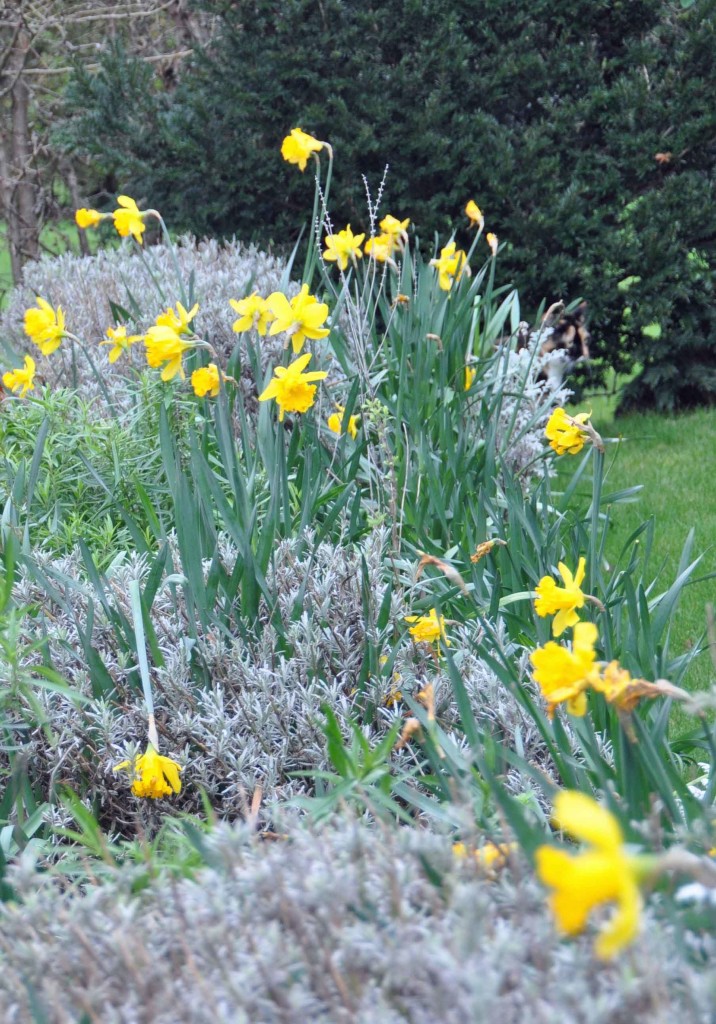 In fact staring out at the gravel garden, there seem to be flowers everywhere.
In fact staring out at the gravel garden, there seem to be flowers everywhere.
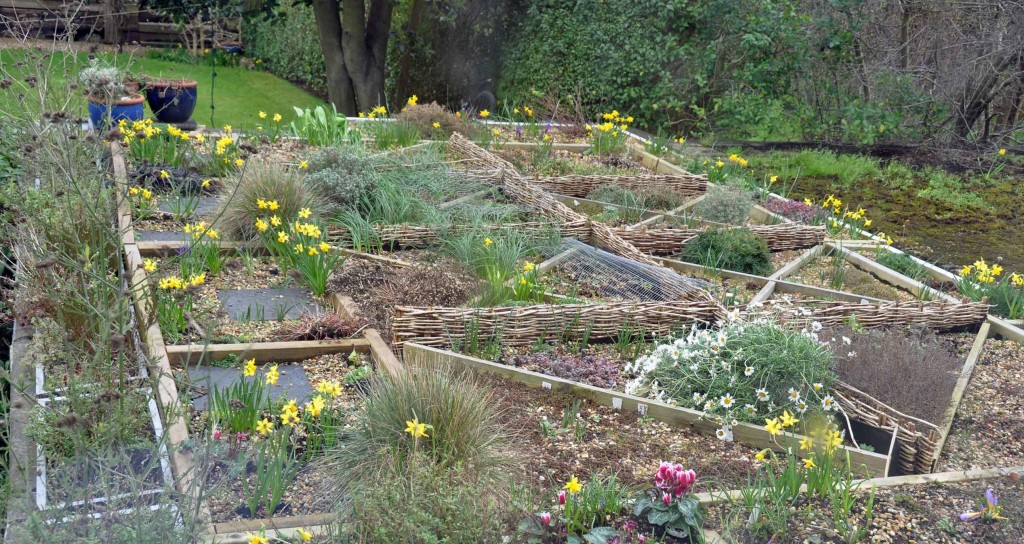 The roof is looking pretty shaggy and so much more cheerful than it’s neighbour which is essentially muddy moss and grass.
The roof is looking pretty shaggy and so much more cheerful than it’s neighbour which is essentially muddy moss and grass.
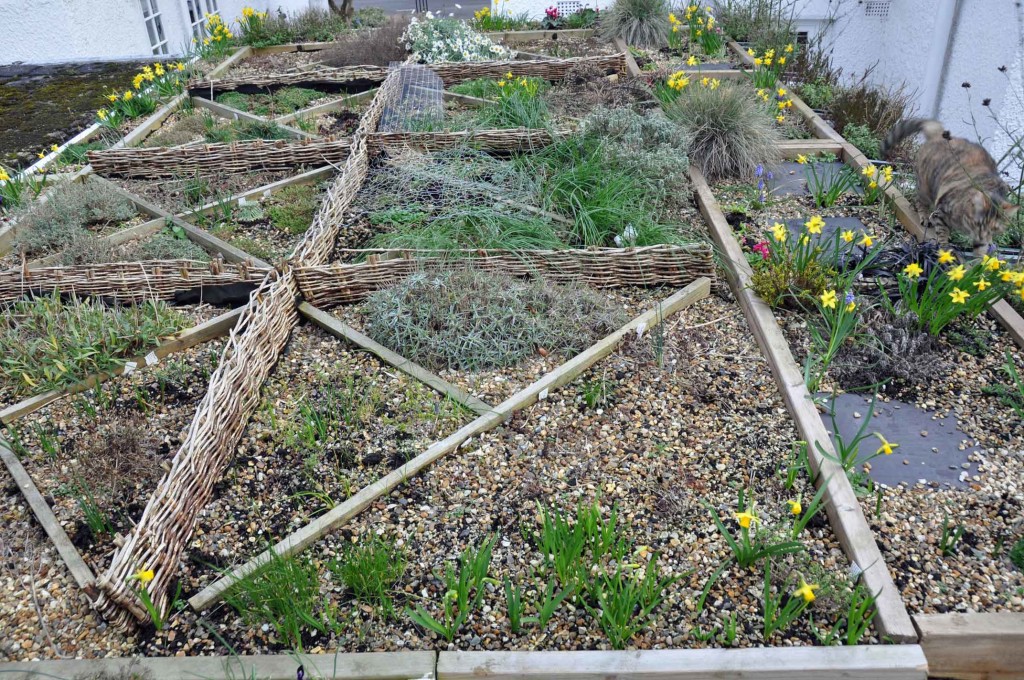 I planted some mini narcissus, and they are looking especially good against the black grass, ophiogon and the whole thing is just full of promise.
I planted some mini narcissus, and they are looking especially good against the black grass, ophiogon and the whole thing is just full of promise.
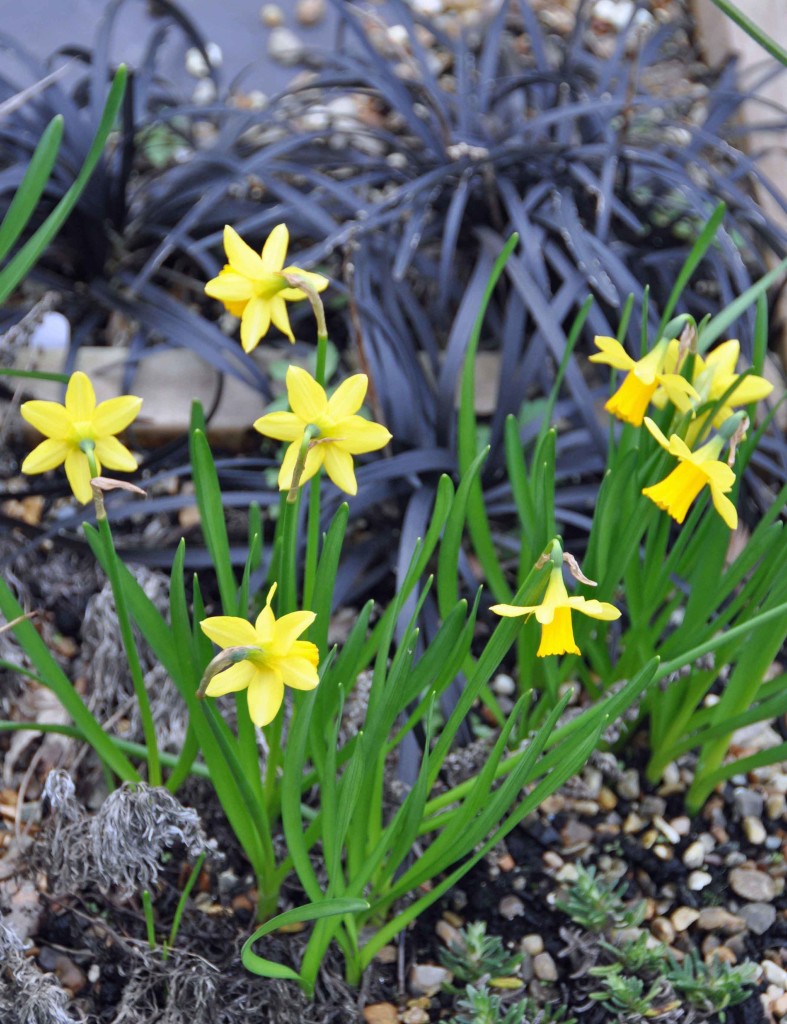
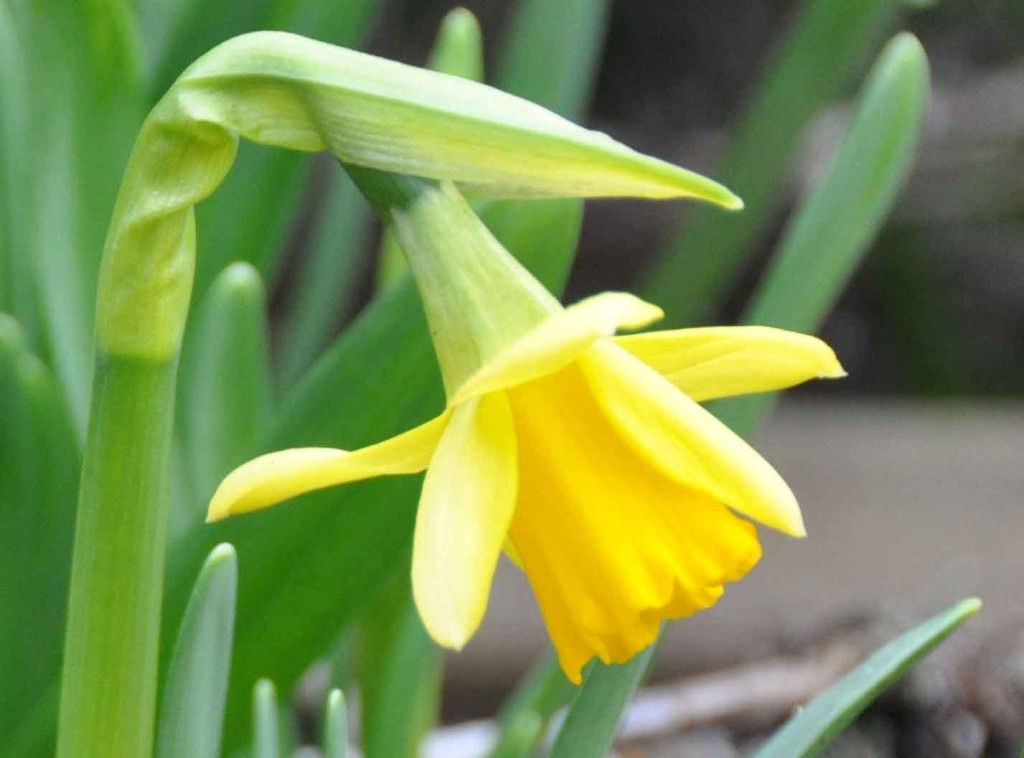
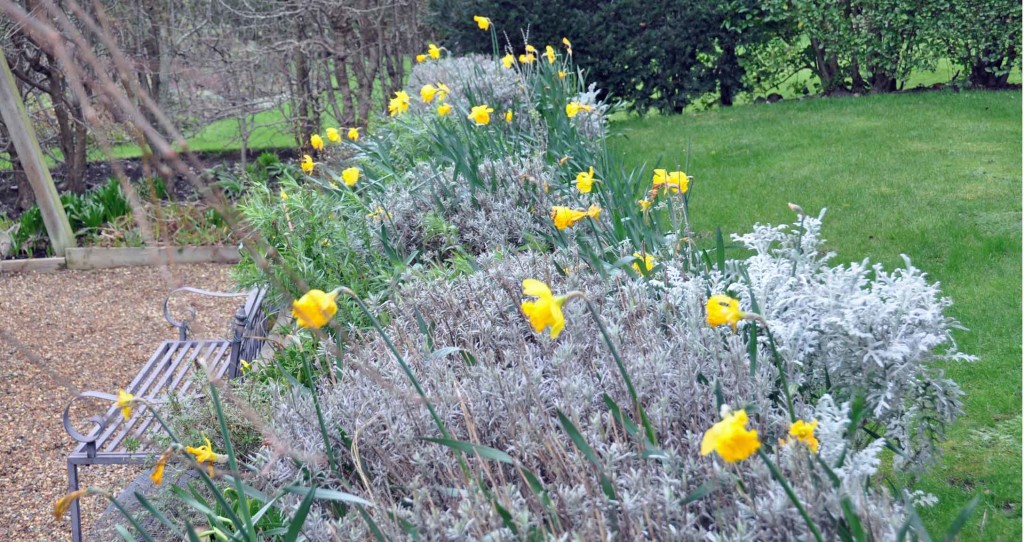 And finally the snowdrops have sprung up near the doorstep.
And finally the snowdrops have sprung up near the doorstep.
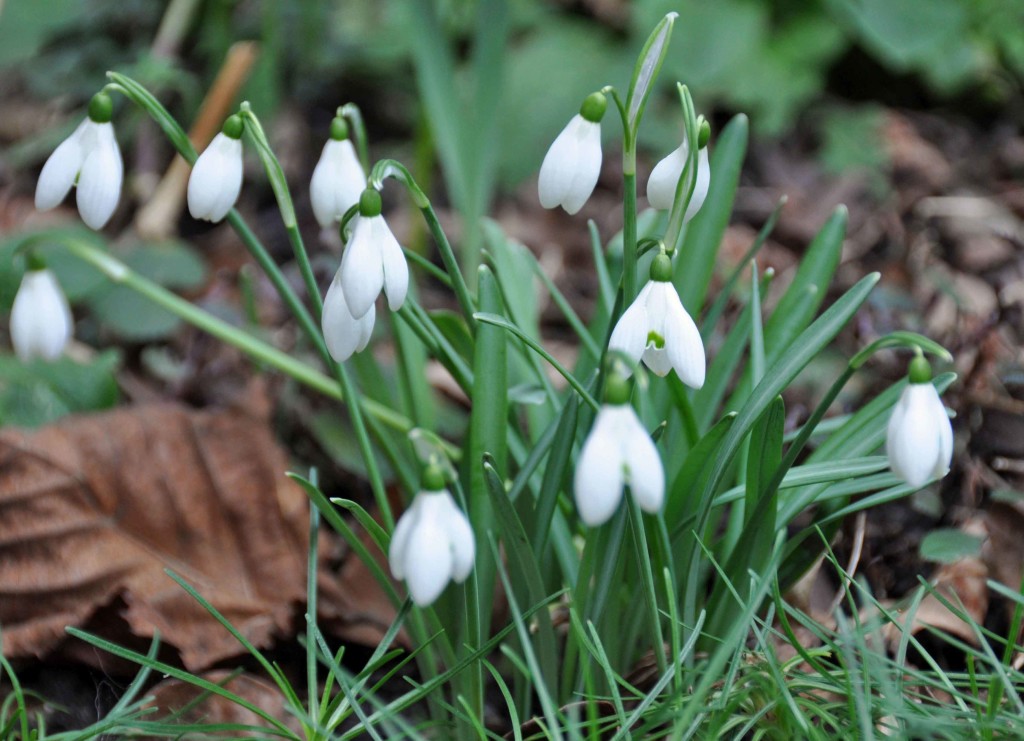
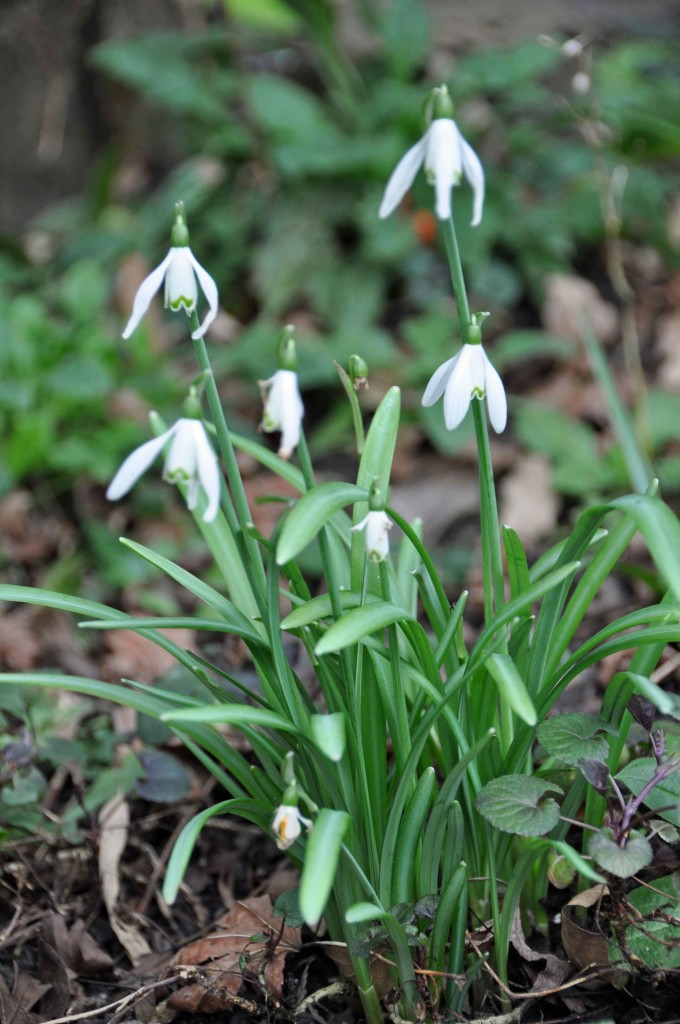 The crocus have mostly poked through the soggy lawn and beds but need a bright day to really stand out.
The crocus have mostly poked through the soggy lawn and beds but need a bright day to really stand out.
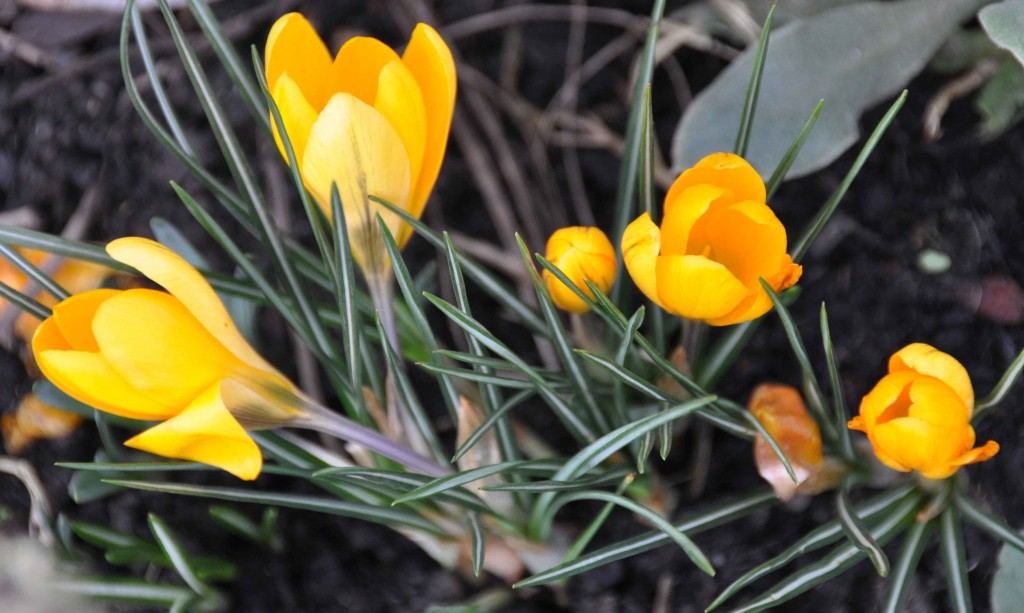
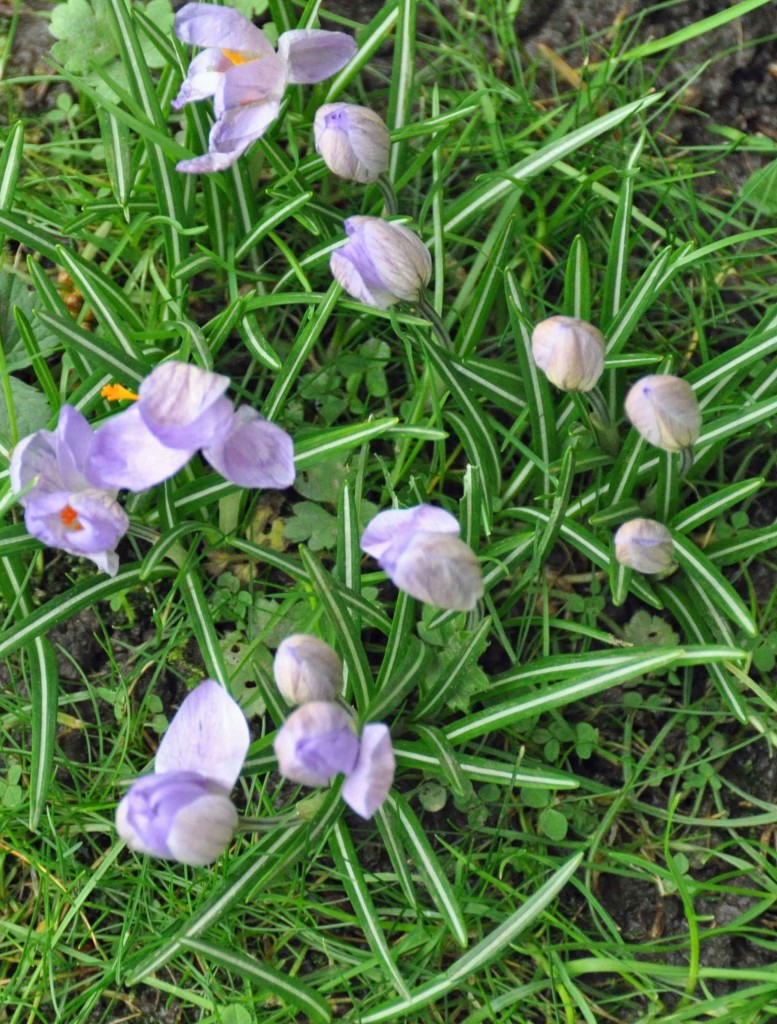
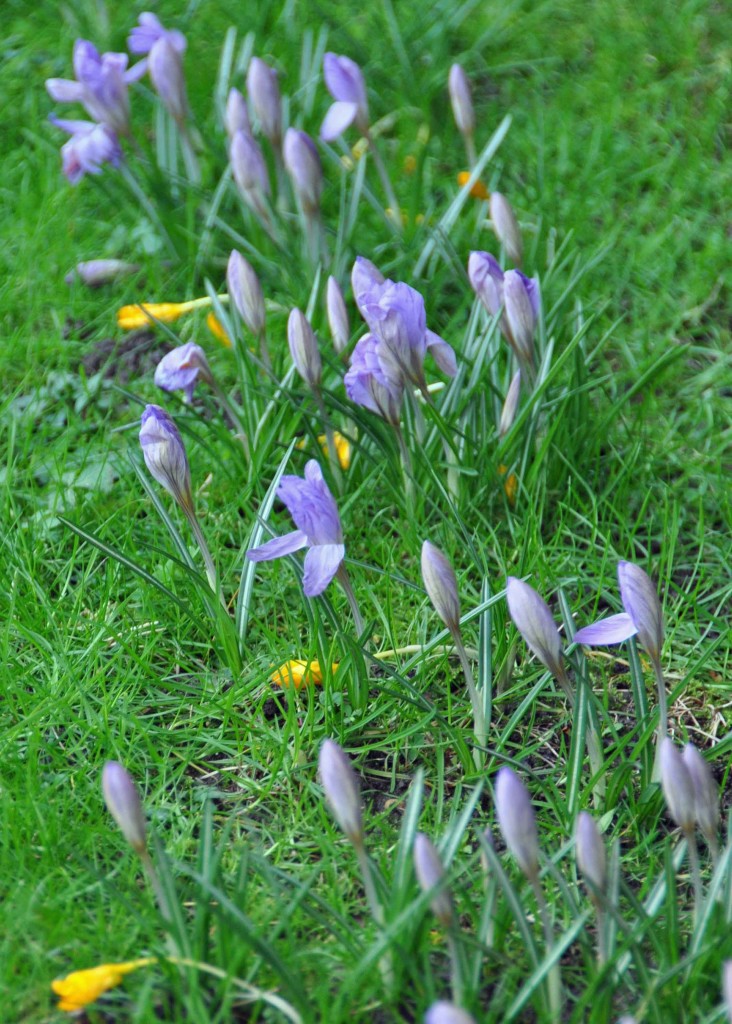 And there are the stubborn plants that should be long gone, but insist on flowering on, the berries, the rhodanthemum, the hardy geraniums that refuse to go away.
And there are the stubborn plants that should be long gone, but insist on flowering on, the berries, the rhodanthemum, the hardy geraniums that refuse to go away.
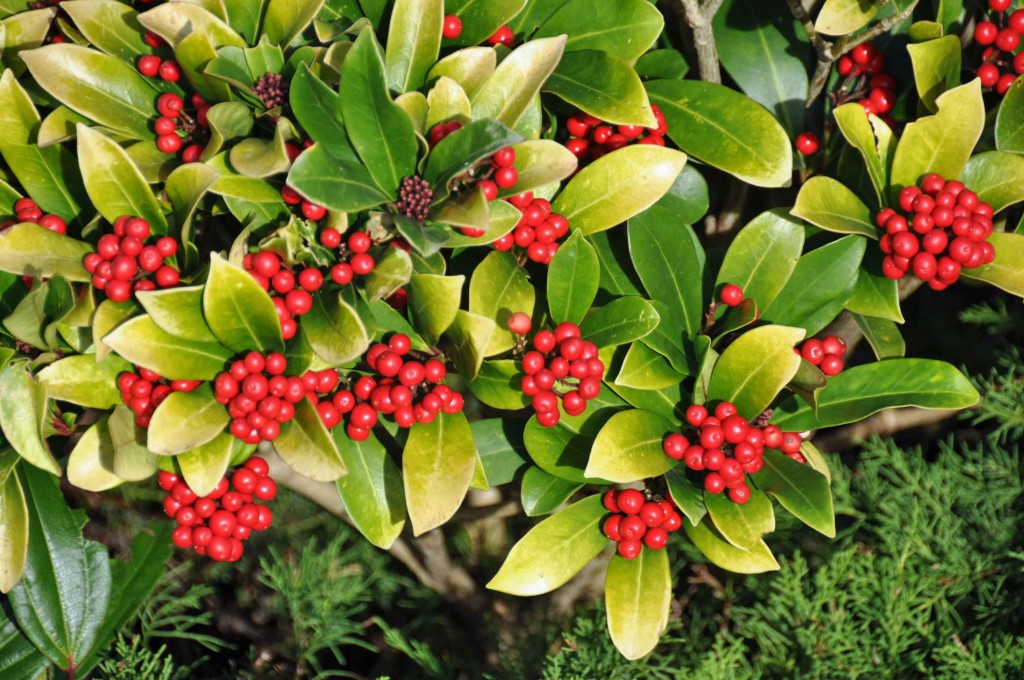
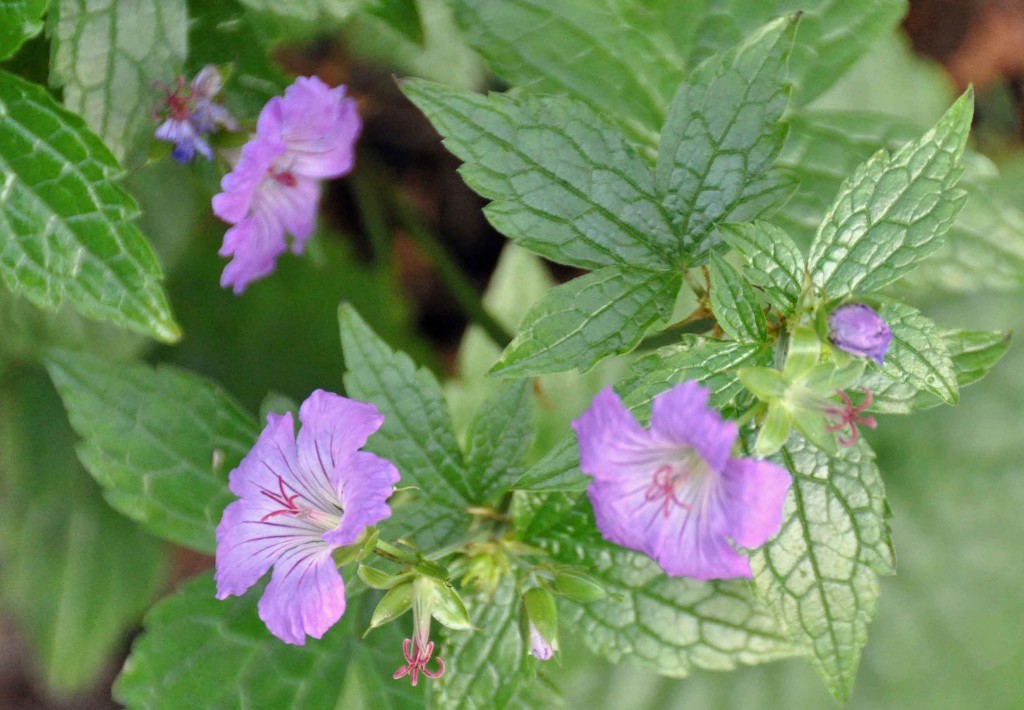
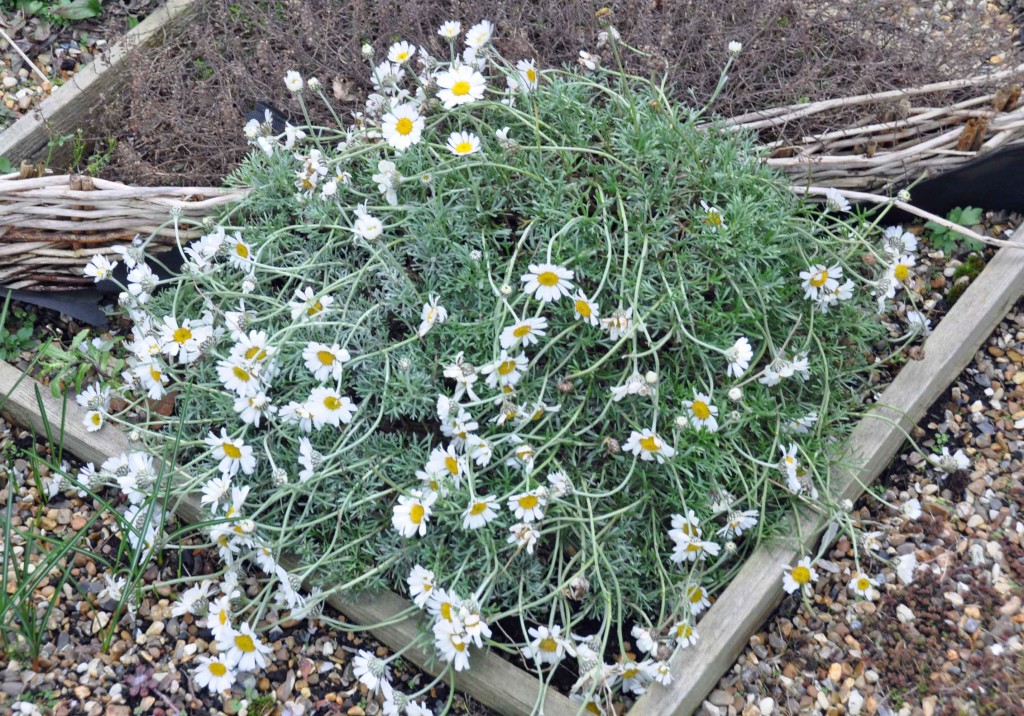 And the promise of flowers still to come, fom bedding violas, primroses and primulas to dwarf iris.
And the promise of flowers still to come, fom bedding violas, primroses and primulas to dwarf iris.
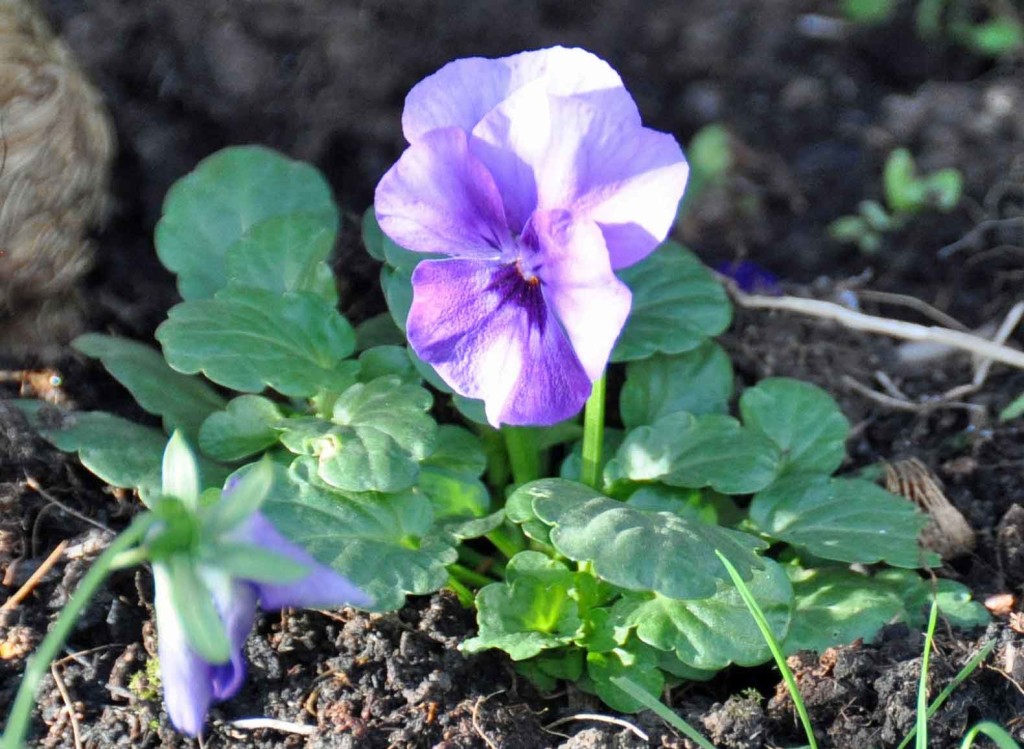
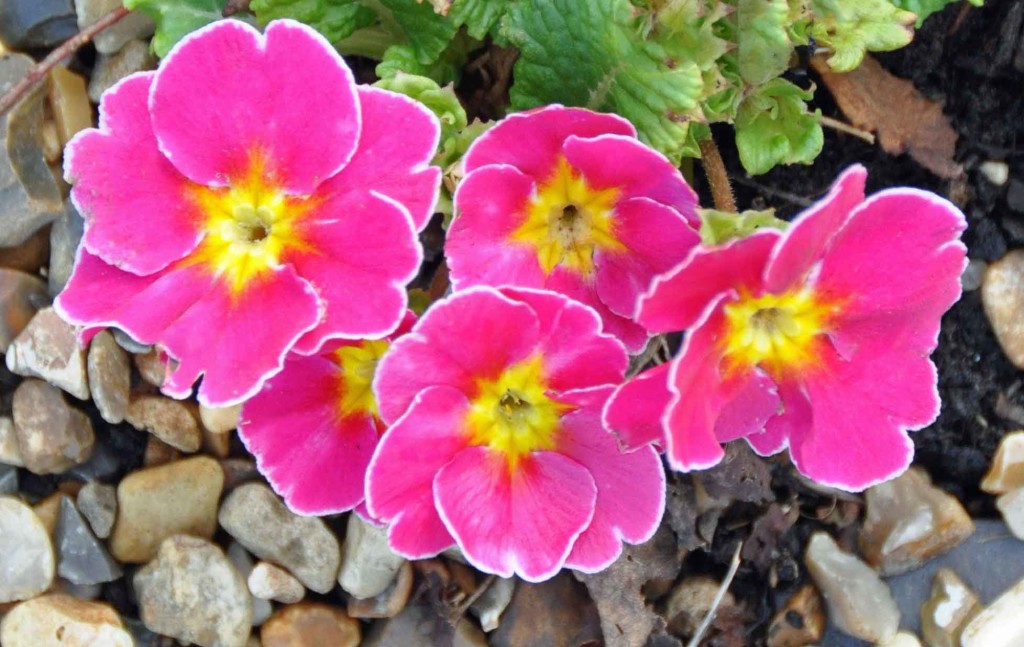
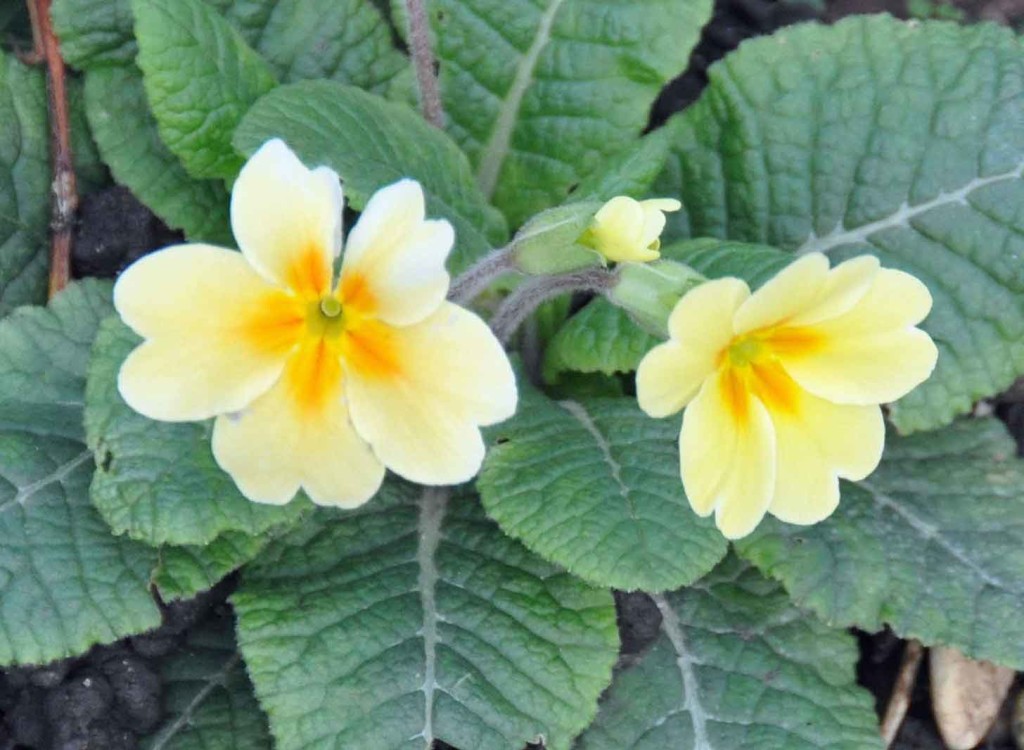
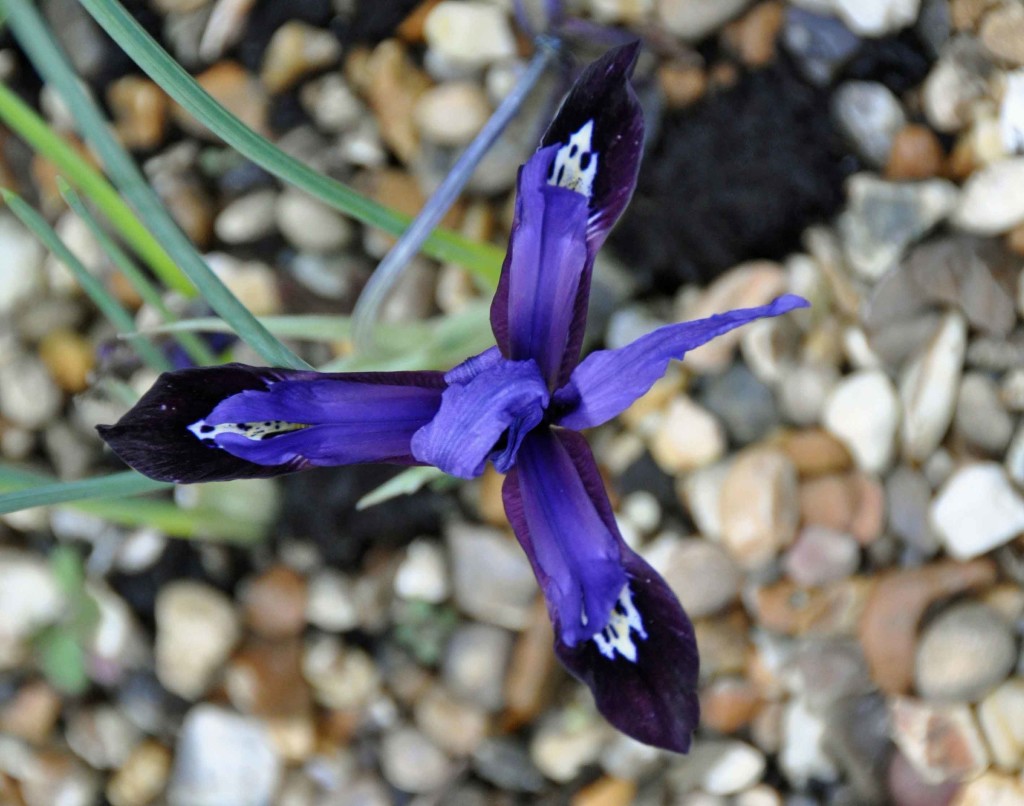 And the foliage of the alpines that always seems worth a second look.
And the foliage of the alpines that always seems worth a second look.
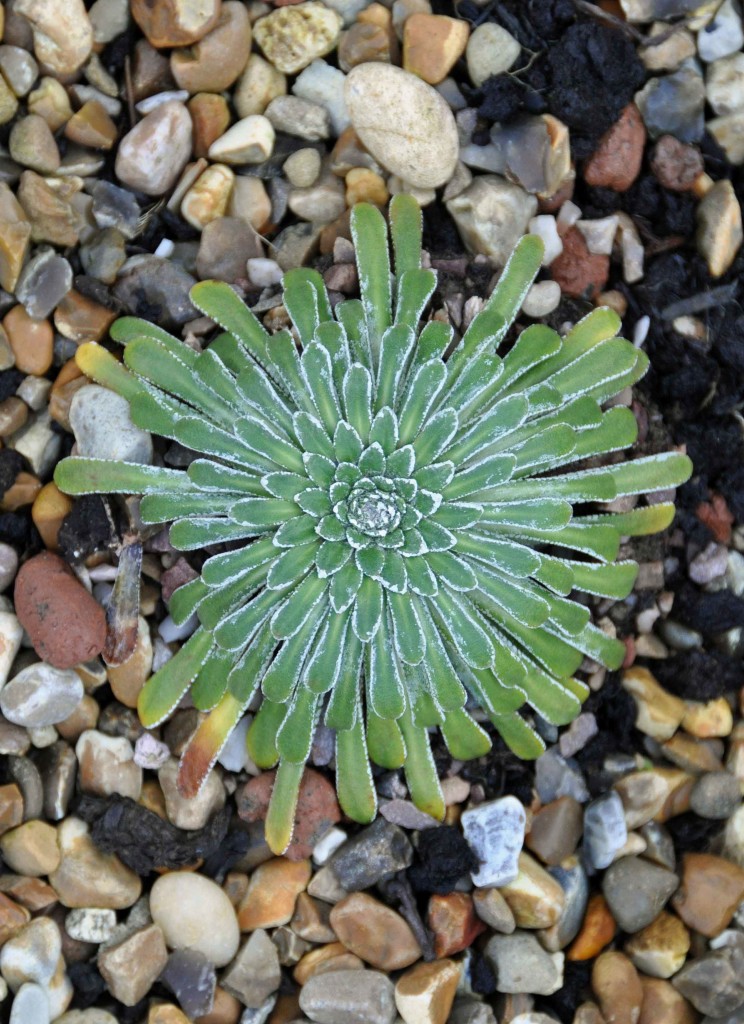
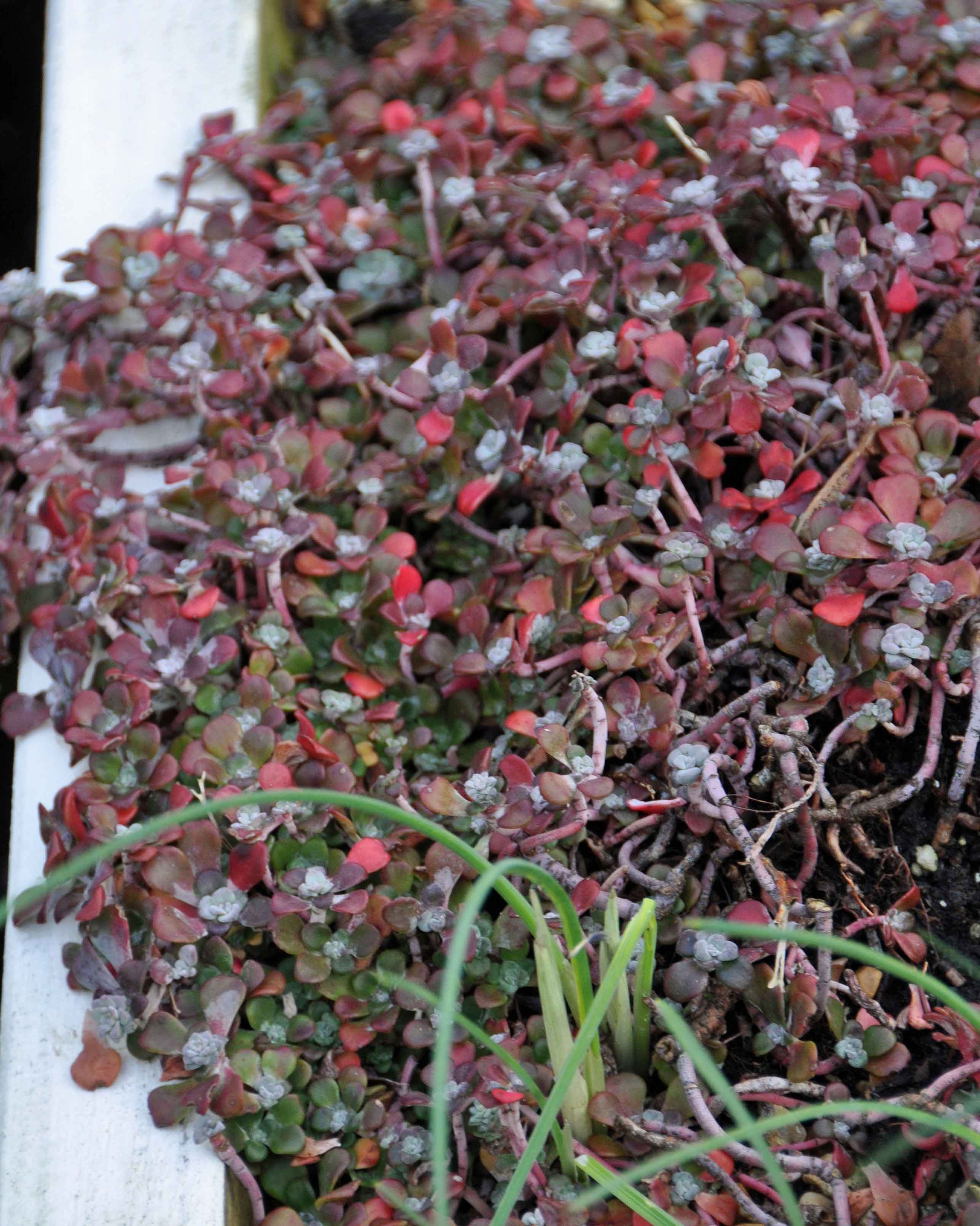 Everytime I step outside, the cats are more than happy to keep me company, epecially if it involves insepcting the bird feeders or a chat on the bench.
Everytime I step outside, the cats are more than happy to keep me company, epecially if it involves insepcting the bird feeders or a chat on the bench.
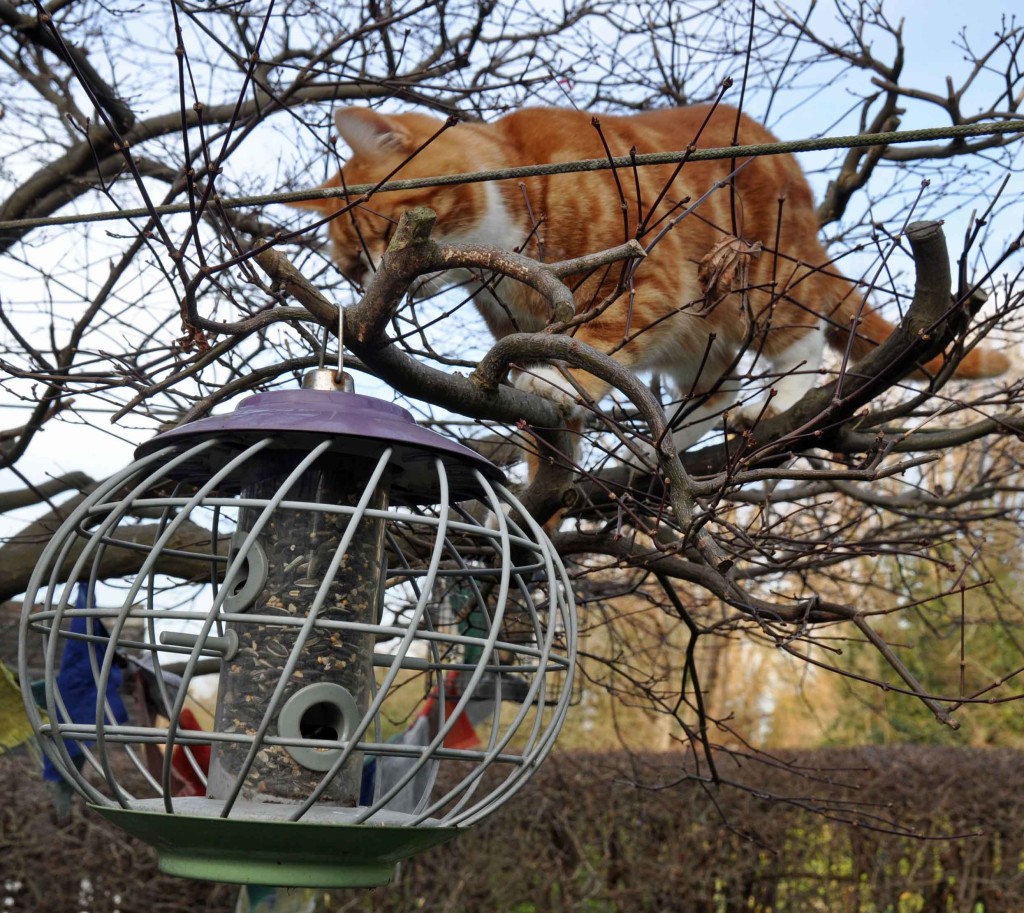 I love this time of the garden, the quietest but also so full of promise.
I love this time of the garden, the quietest but also so full of promise.
May/June
The garden is looking lovely just now but there’s no doubt that everything is still quite mixed up after a warm Winter and wet Spring. The seasons have run into each other.
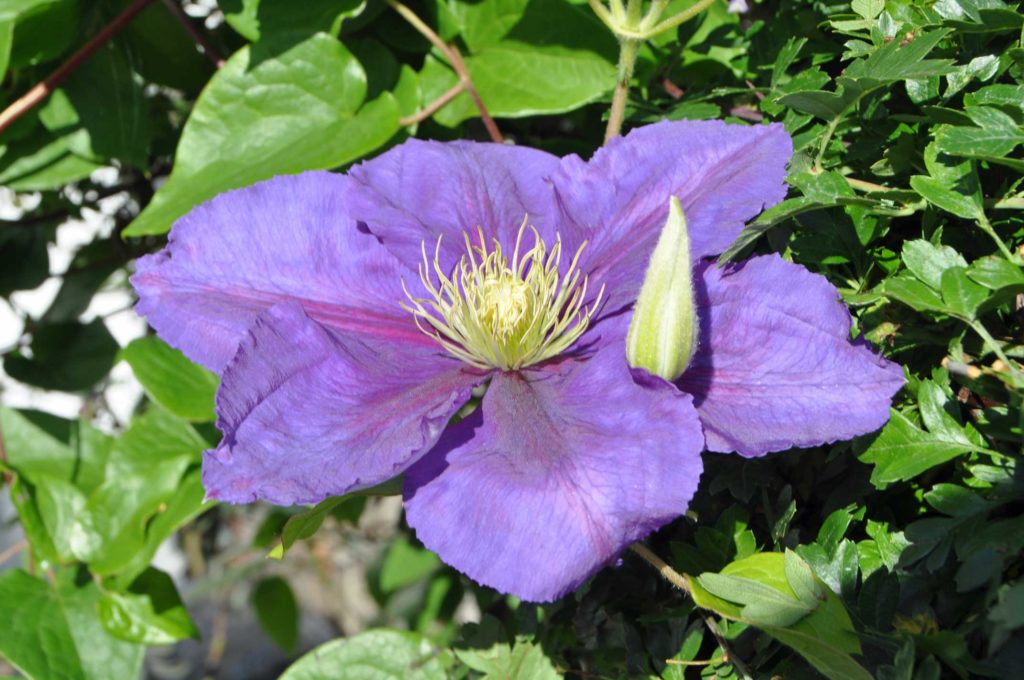
Normally the clematis succeed each other but they’re both out together. The iris planted to fill a gap have come and gone. Luckily the gap appears to have disappeared as everything runs into each other.
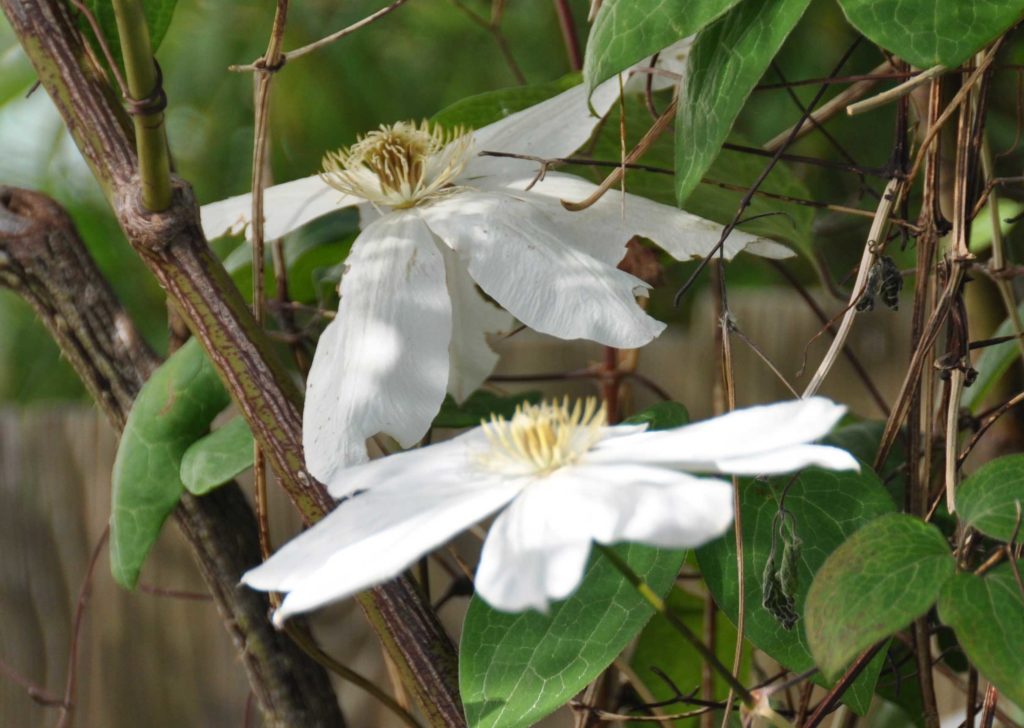
Under the holly tree the sempervivum are surviving, if not exactly thriving. I may just stick some more in to build up a little colony.
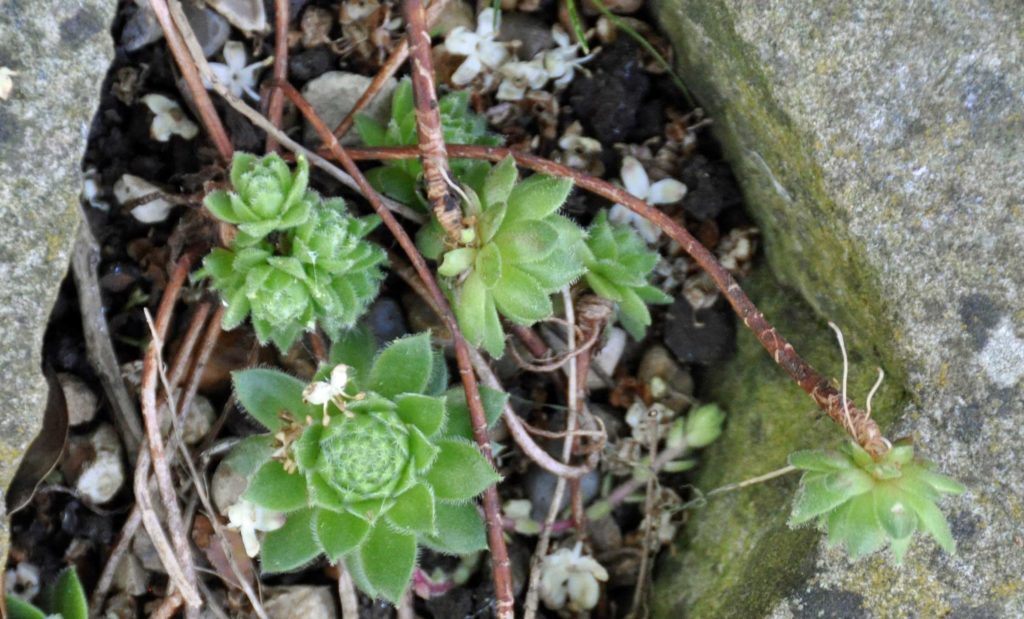
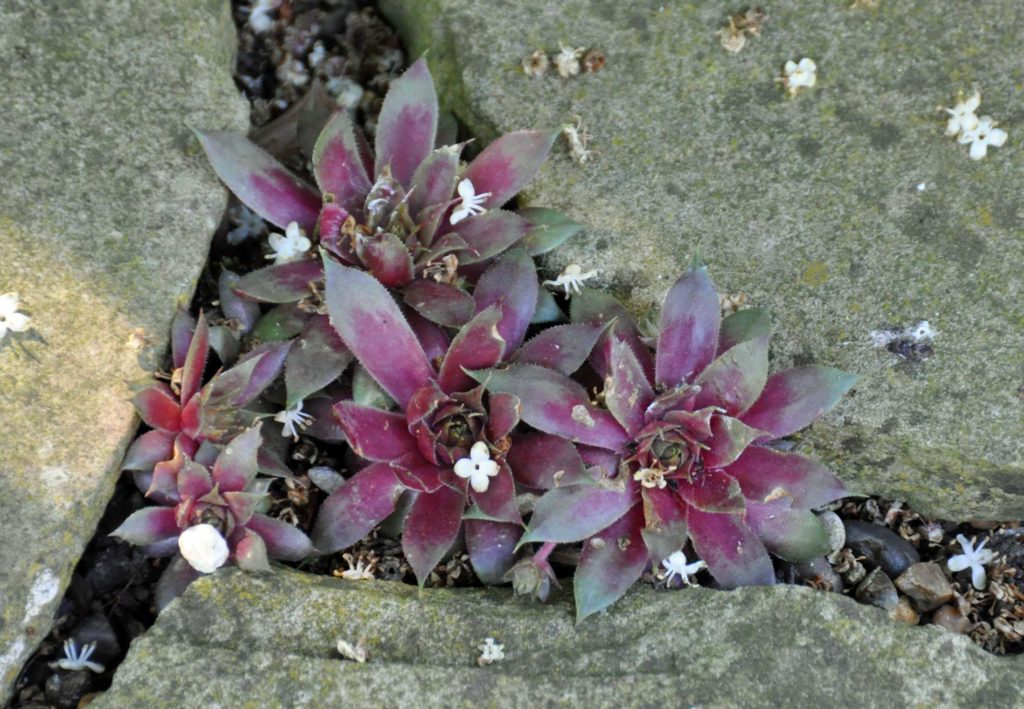
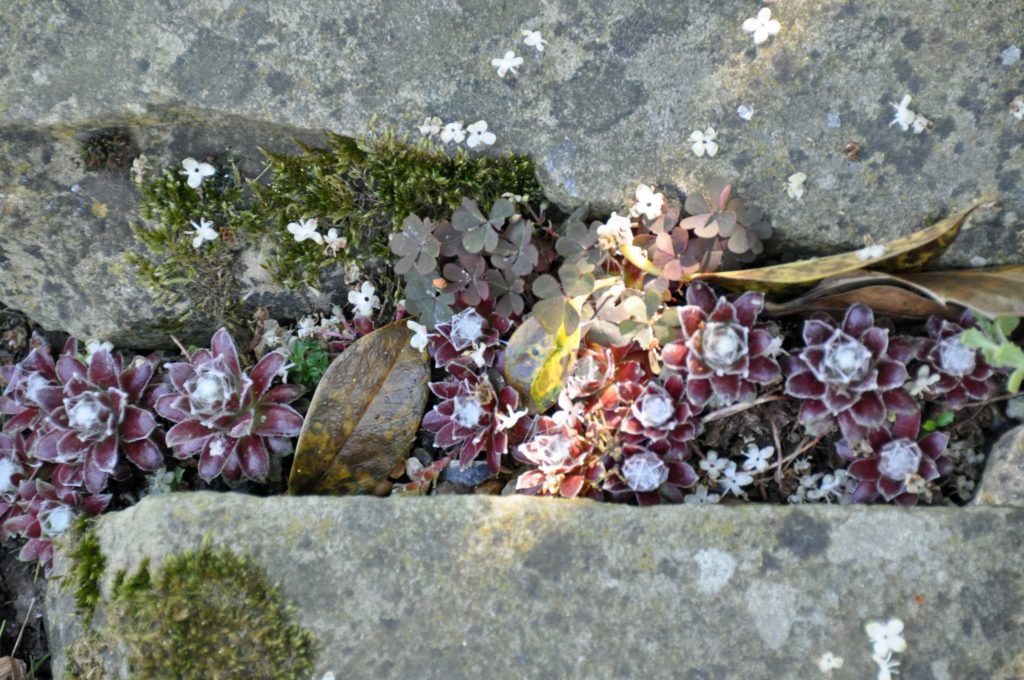
The gravel roof is looking busy, very colourful and more than a little bit overgrown. The Mexican Fleabane is making a bit of a run for it. As always I can see myself spending the next twenty years faithfully digging up all of the plants that I’ve put in, just to keep it tidy.
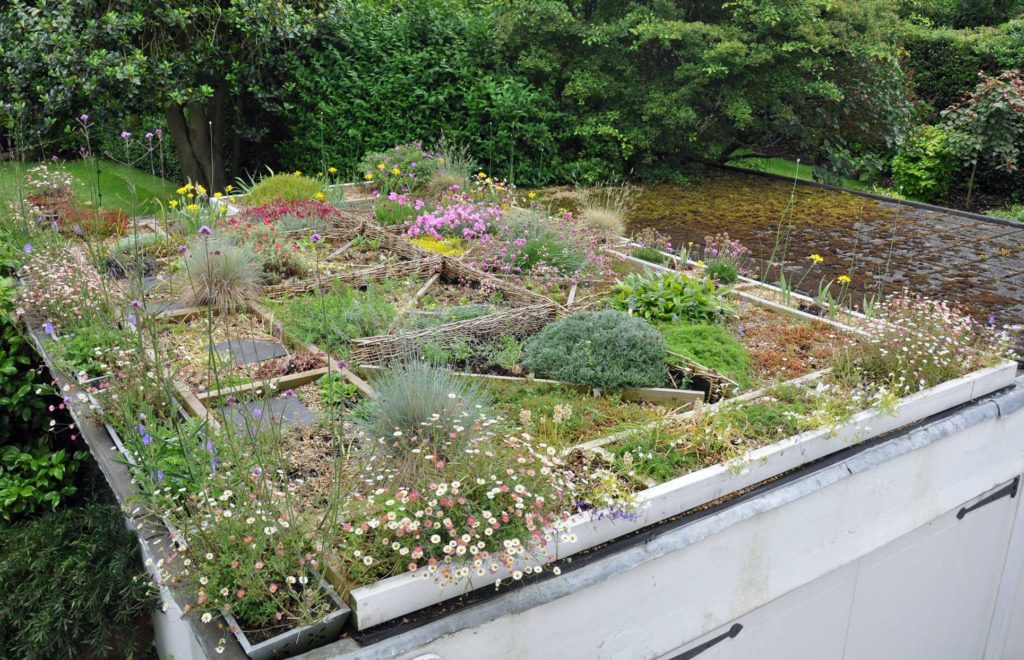
I’m especially pleased with the saxifraga urbina (London’s Pride) which came from my partner’s mother’s garden and provides a link back through family.
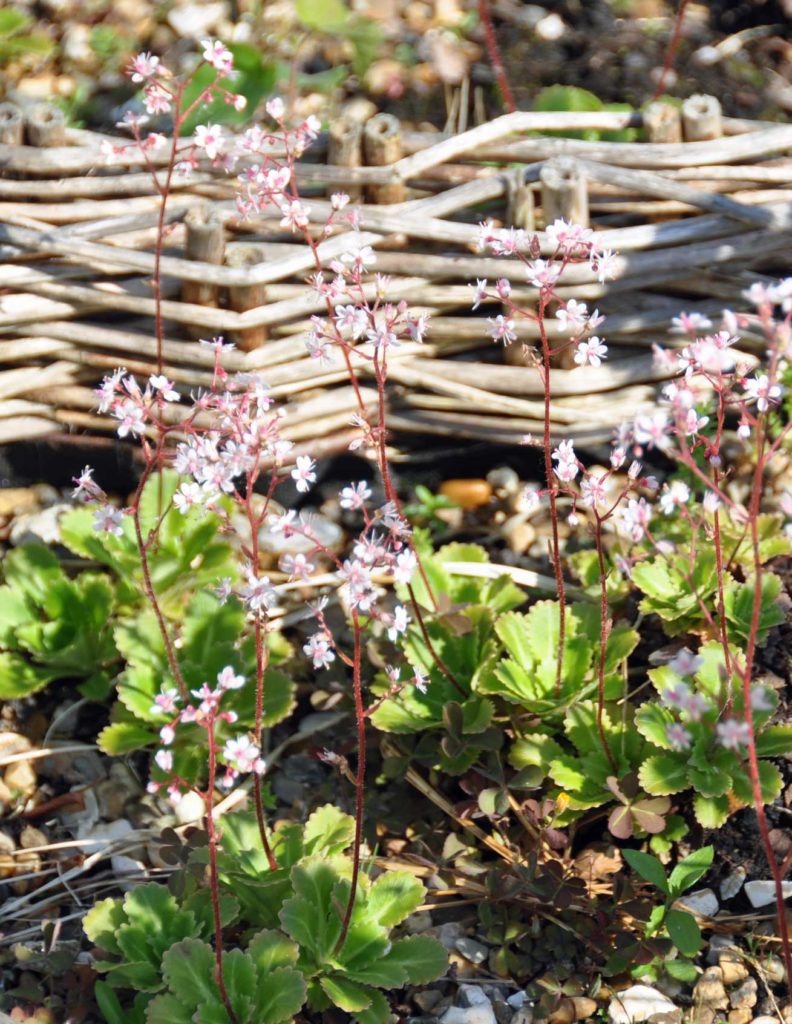
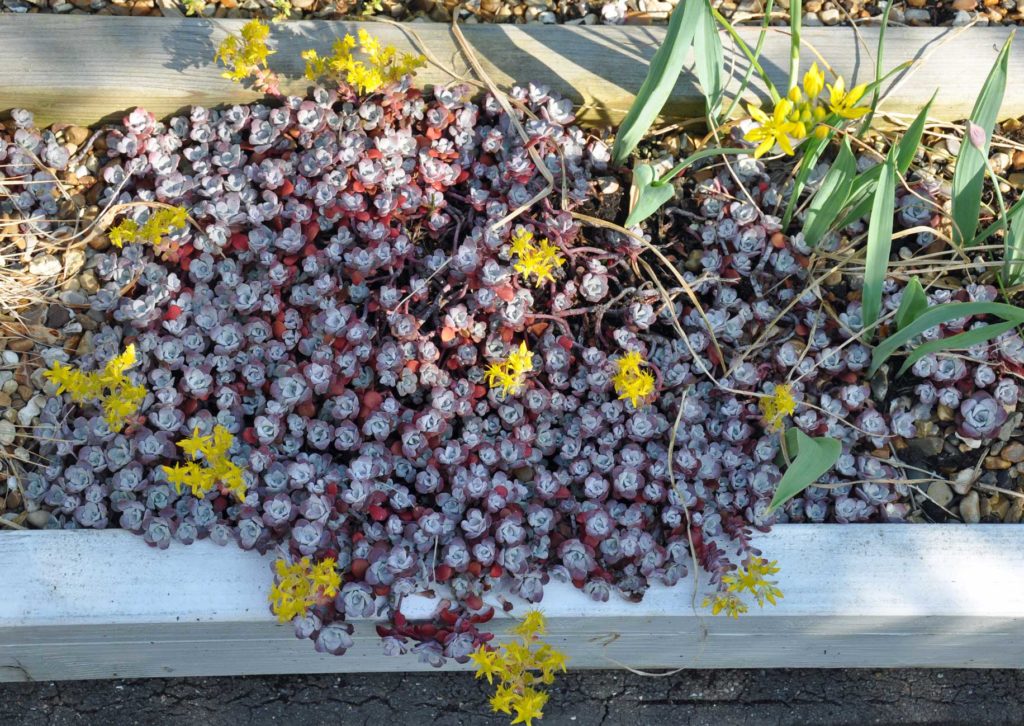
In fact the saxifragras, sedums and sempervivums are looking rather good in amongst the more showy flowers.
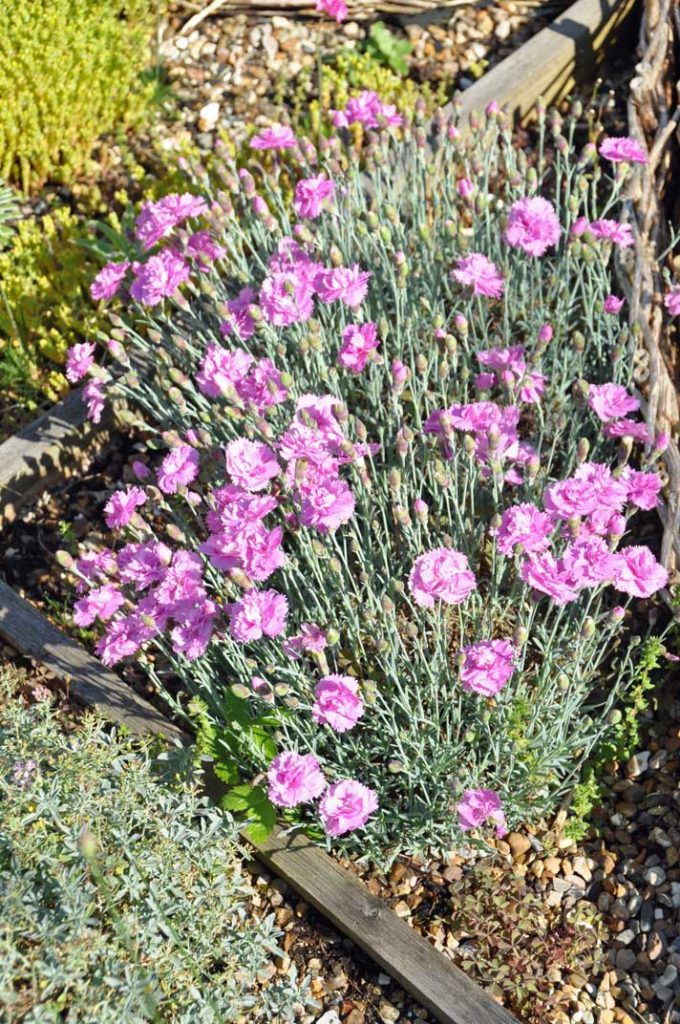
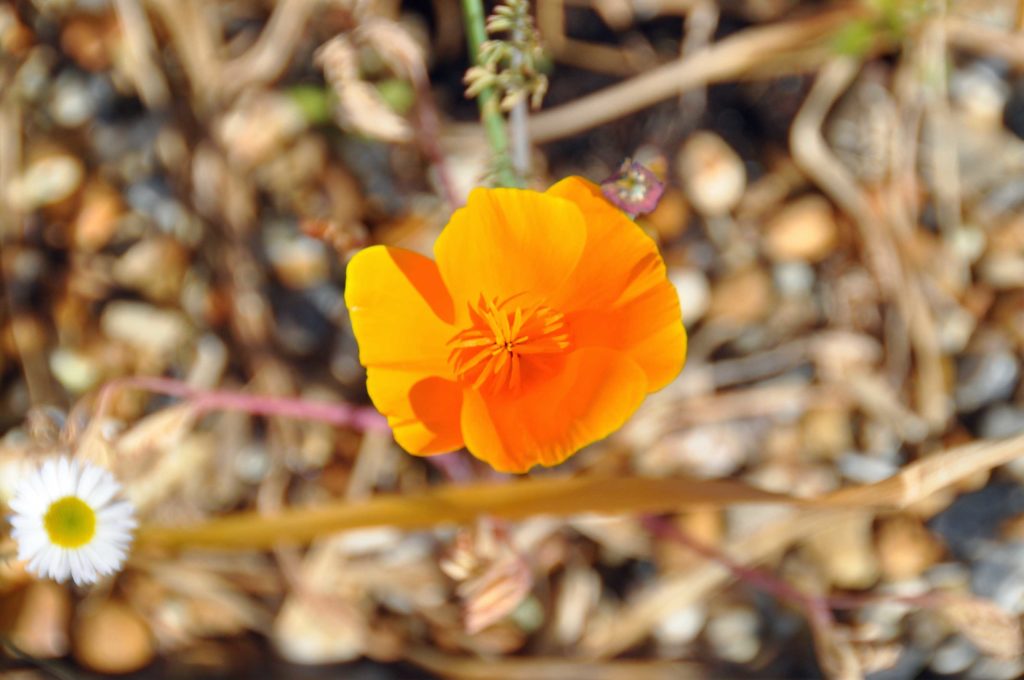
Mid garden and I’m not convinced by the planting up of the fritellaria bed. I had hoped that geraniums and alchemillas would sprout up and cover the fritellaria remains, allowing the alliums to catch the eye.
in fact the geranium is too leggy and the alchemical too small. I’m not sure whether it’s just that they’re young plants or the variety. Surely alchemical mollis is a one-stop garden plant?
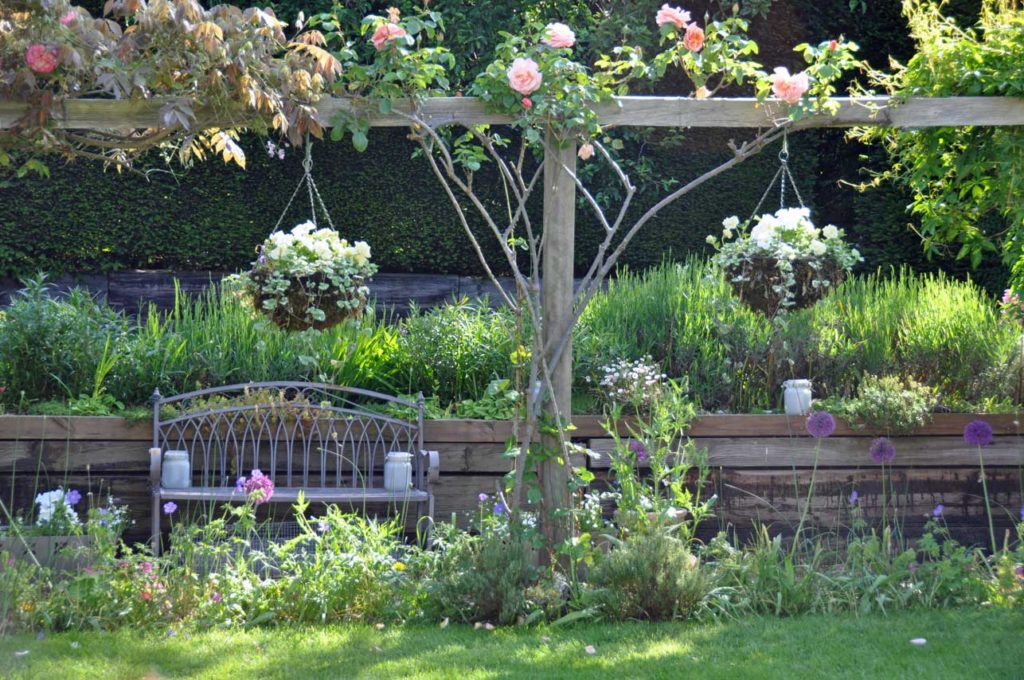
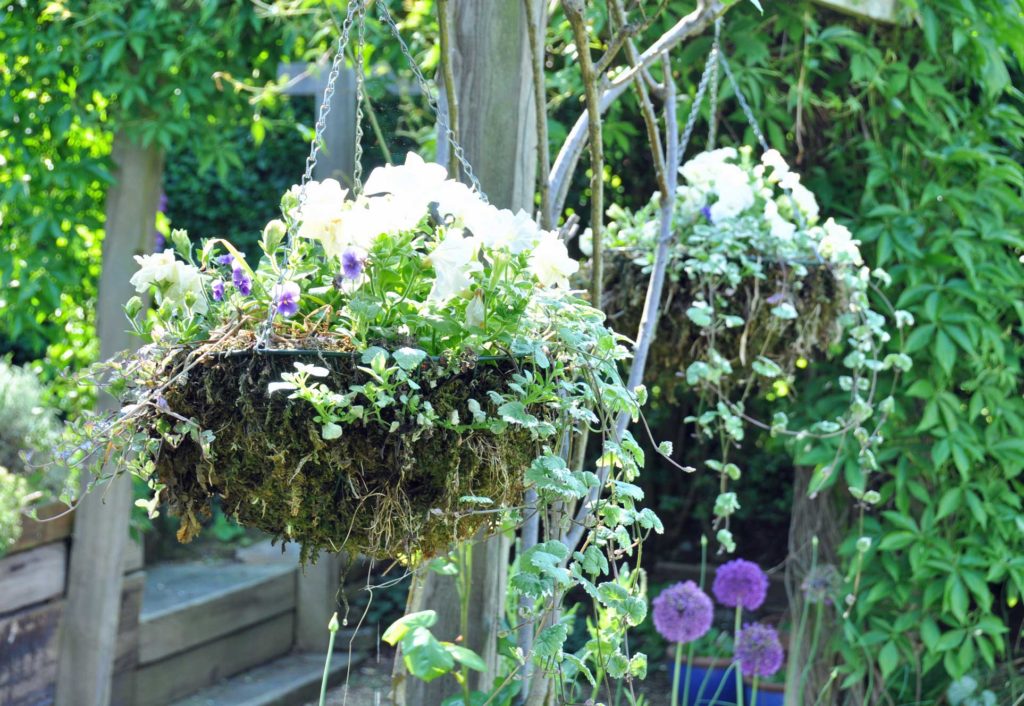
This year I’ve been persuaded to stick with white petunias. From a distance they look good, set against the green hedge and lawn. The nepeta hanging down has proved easy and happy. I am trying my best to be diligent about watering and feeding them. So far it seems to be working.
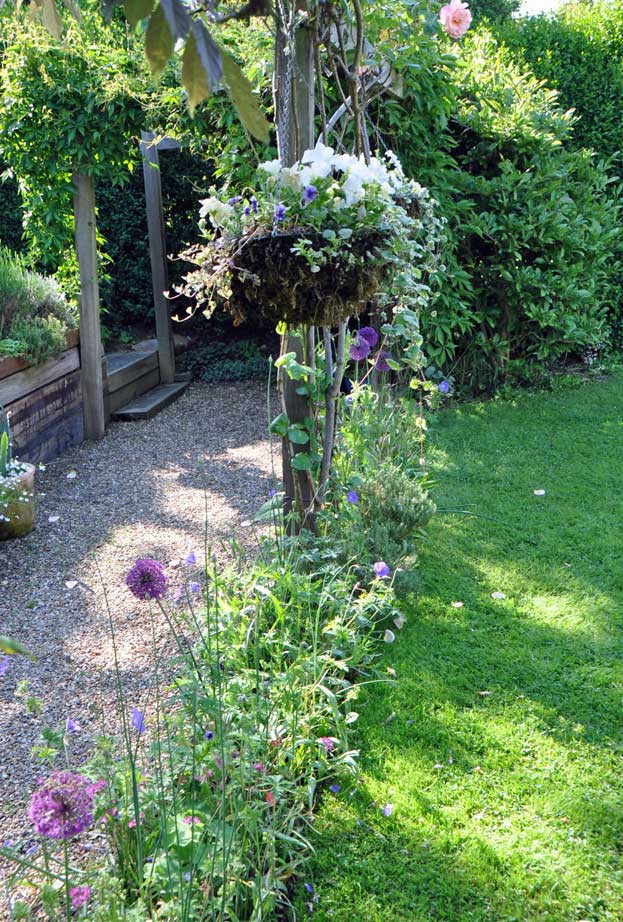
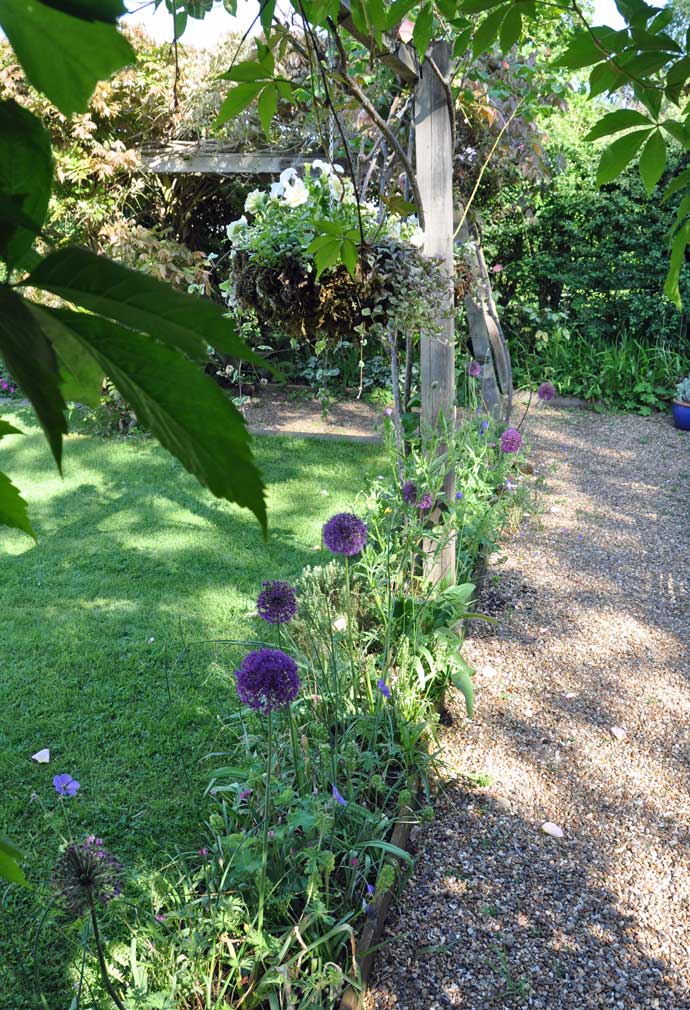
Although I’ve enjoyed the alliums, I can’t help wishing the geranium was less wispy.
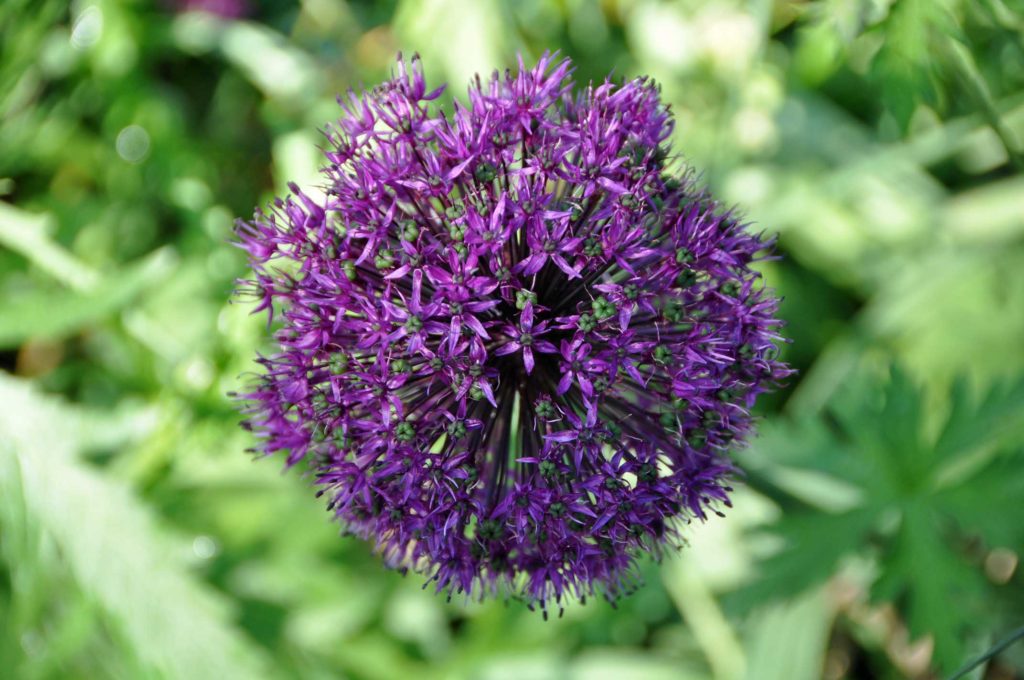
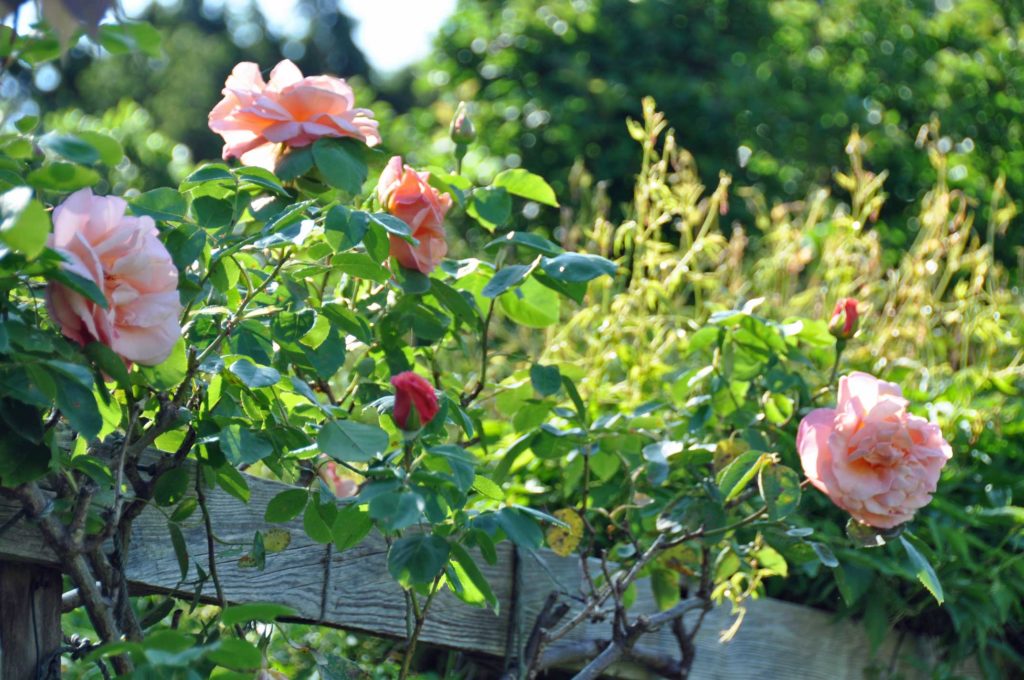
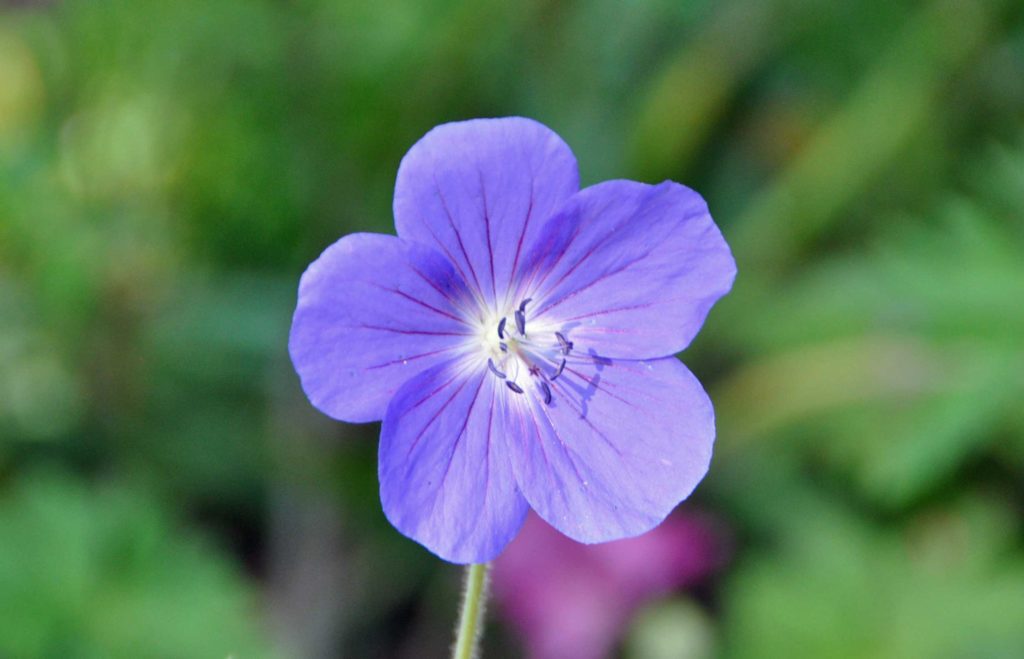
The back bed is promising to look good once the lavender comes in but is still plain. Leftover plants from last year that have returned unexpectedly include some snapdragons and annual geraniums – always a treat to see them return.
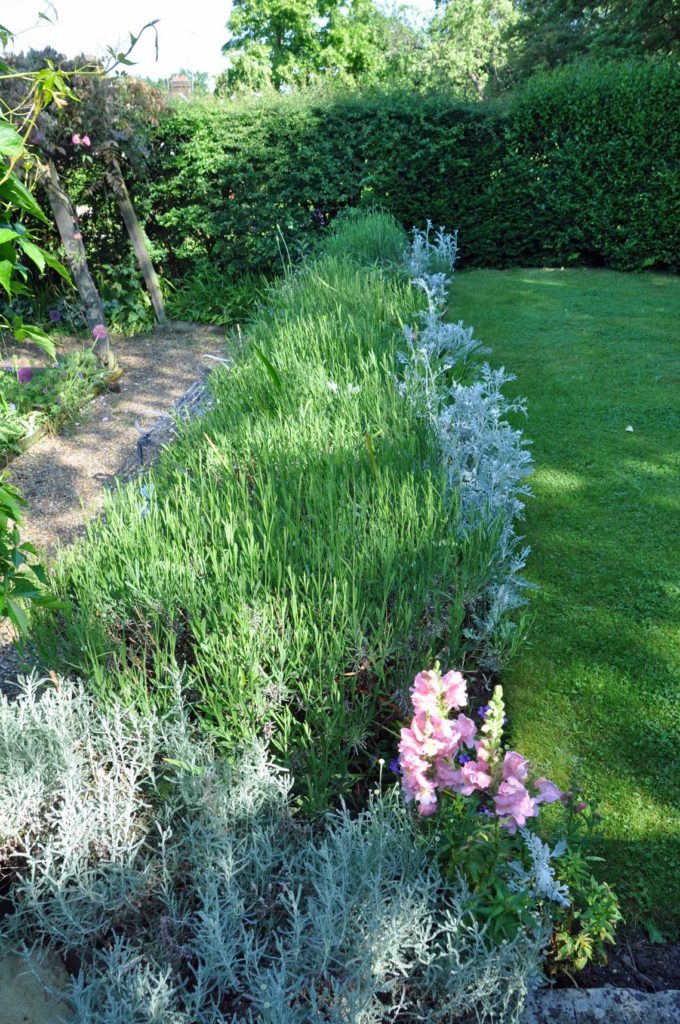
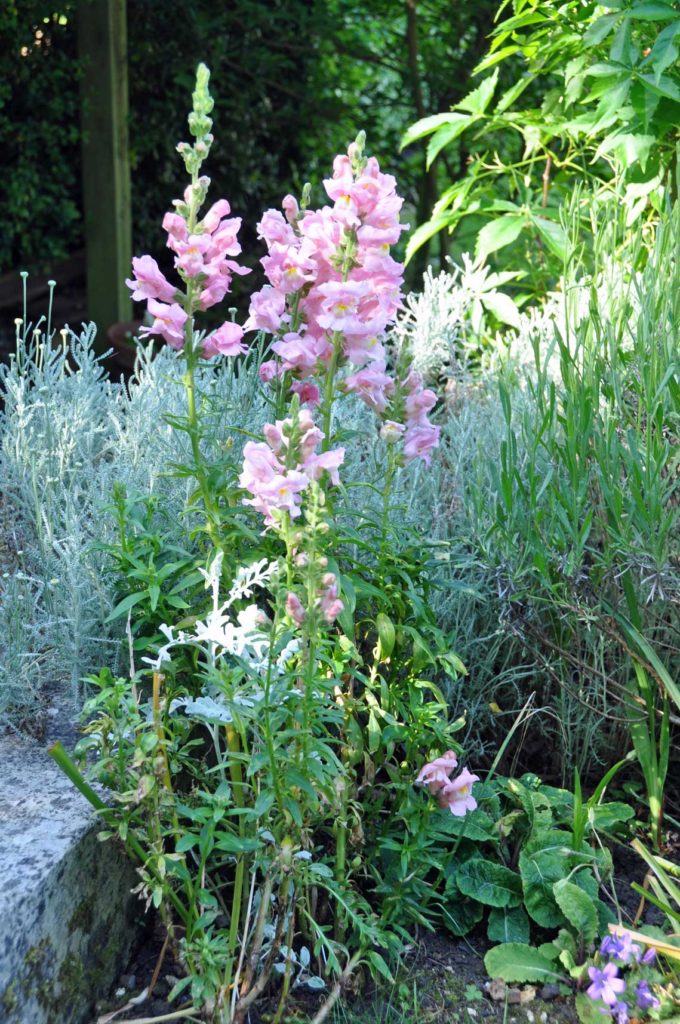
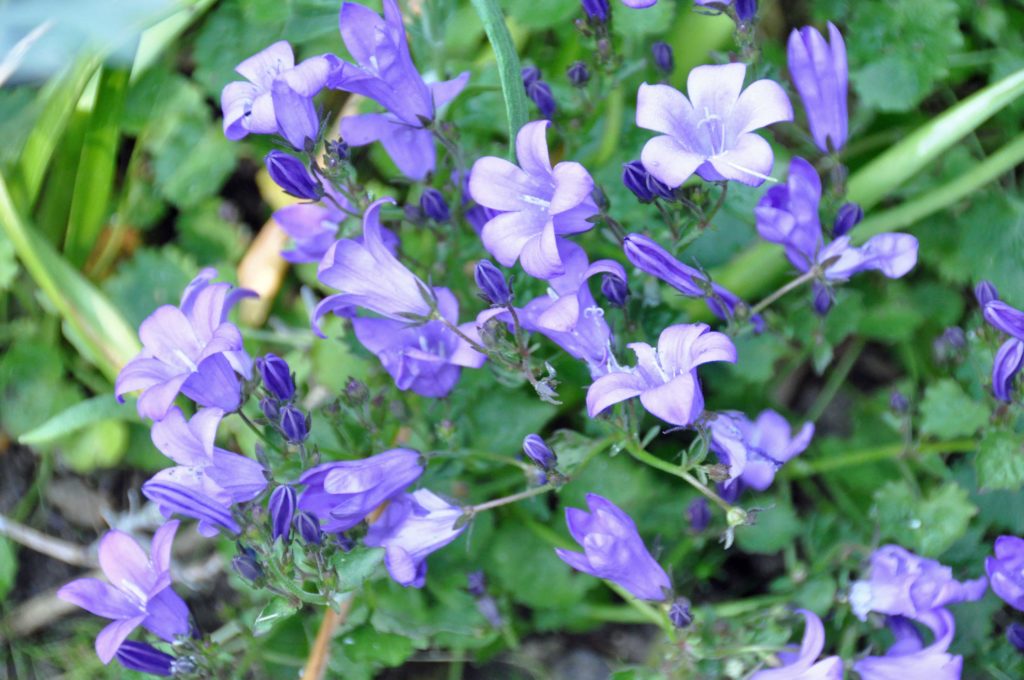
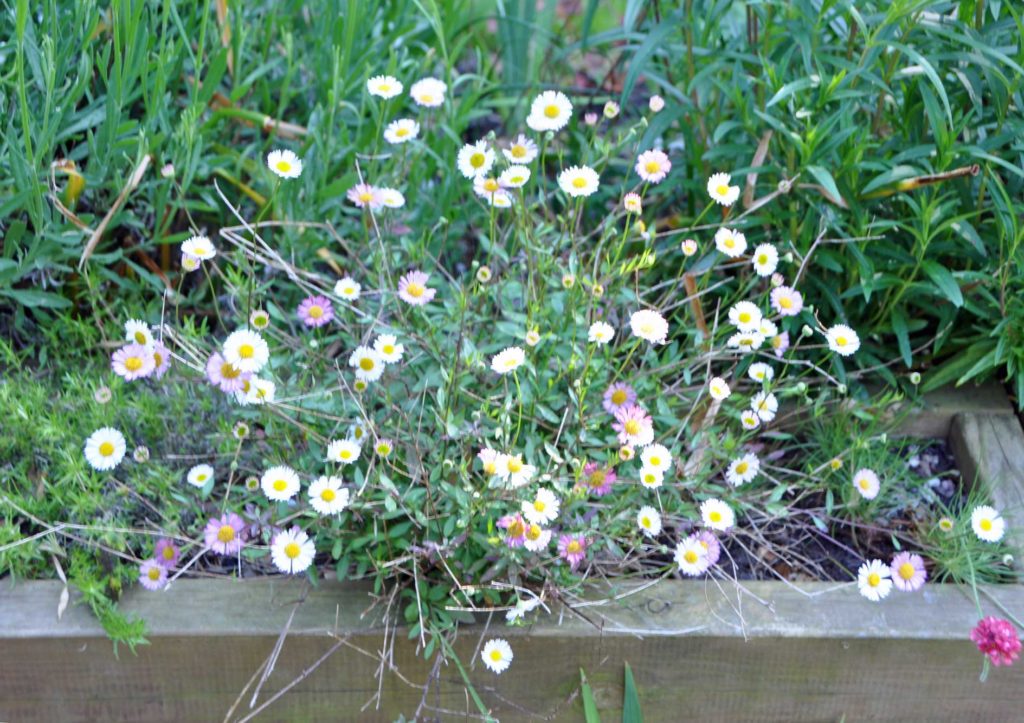
In front of the lavender, in the small bed, the fleabane is thriving and I’ve planted some lobelia over the top of the narcissus bulbs.
The side bed is looking pretty with perennial wallflowers gifted by a friend, sedum, fennel and curry plant.
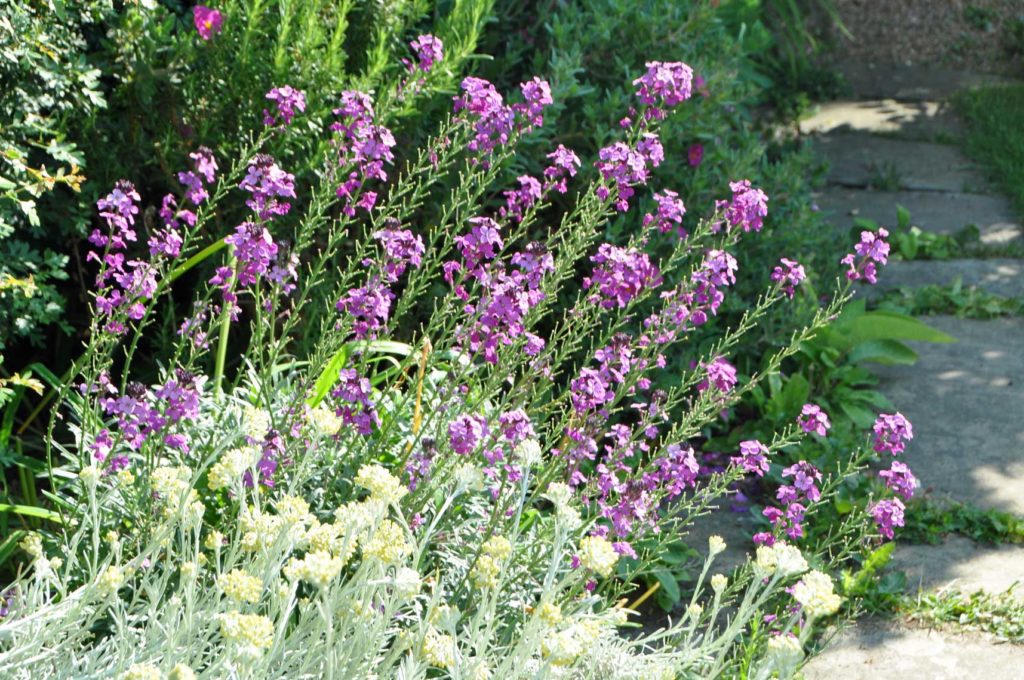
The bed is full of roses and rock roses backed by cat mint and campanulas.
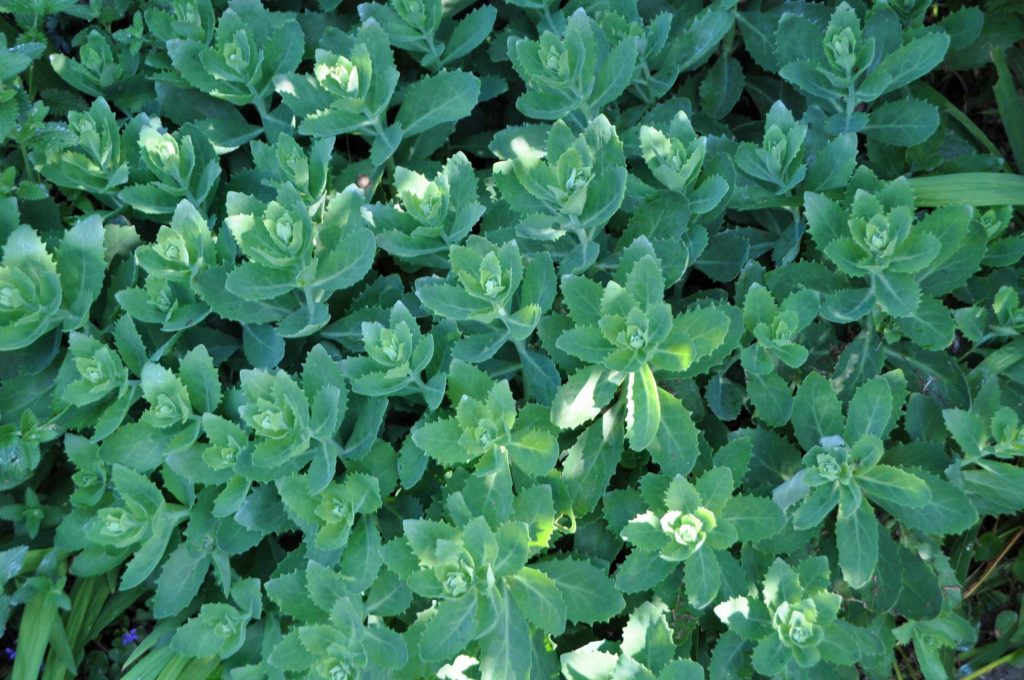
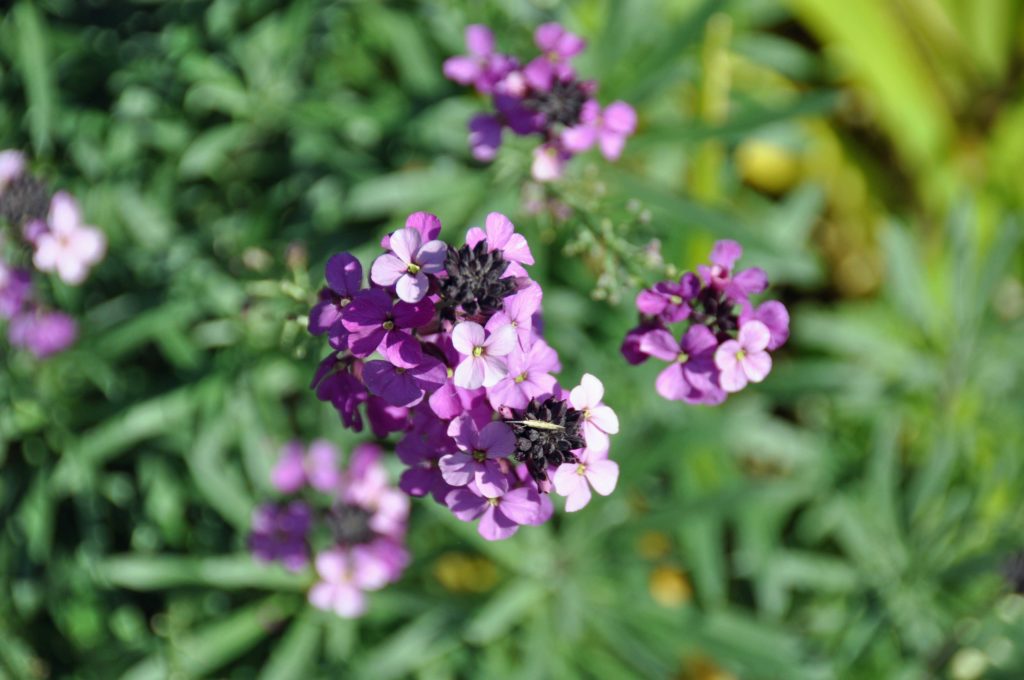
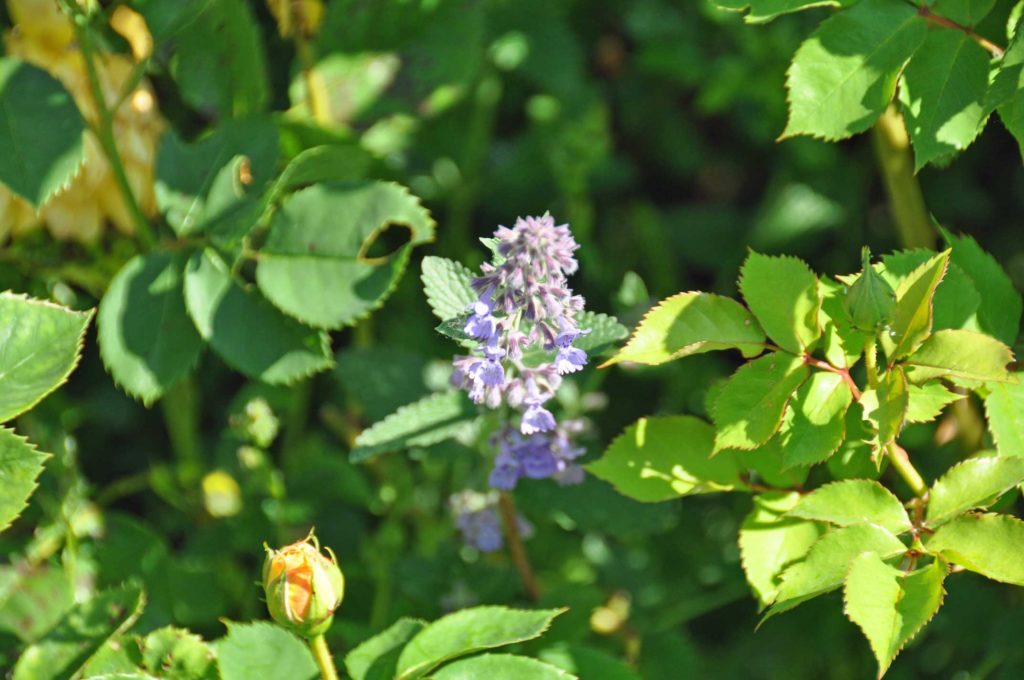
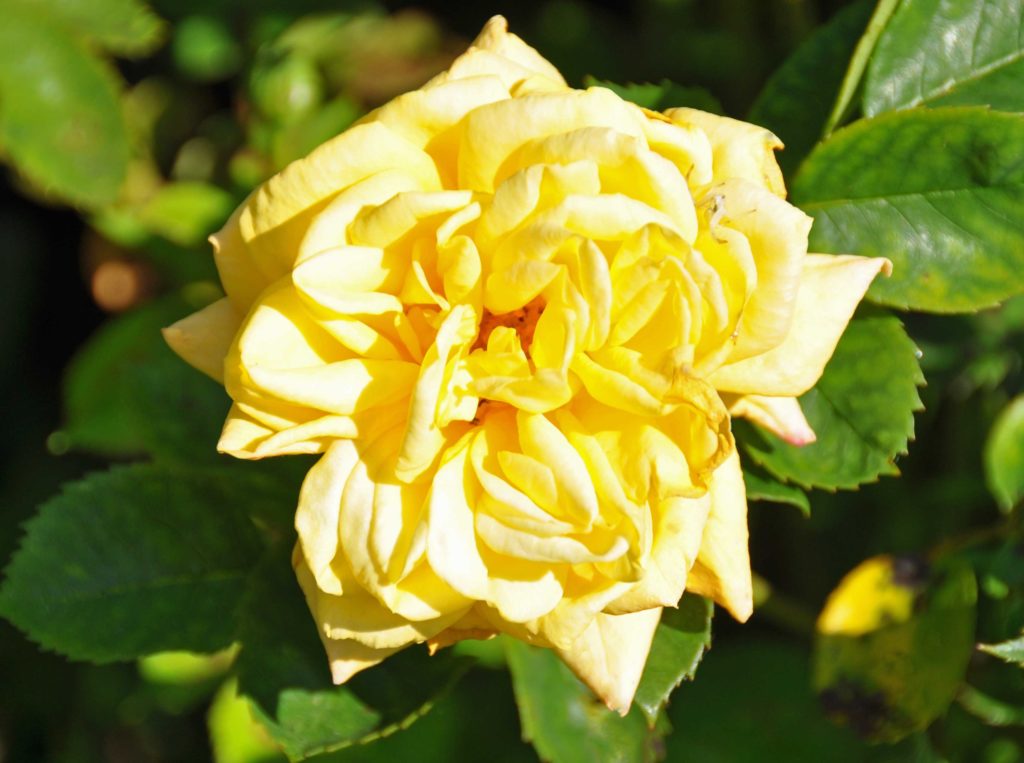
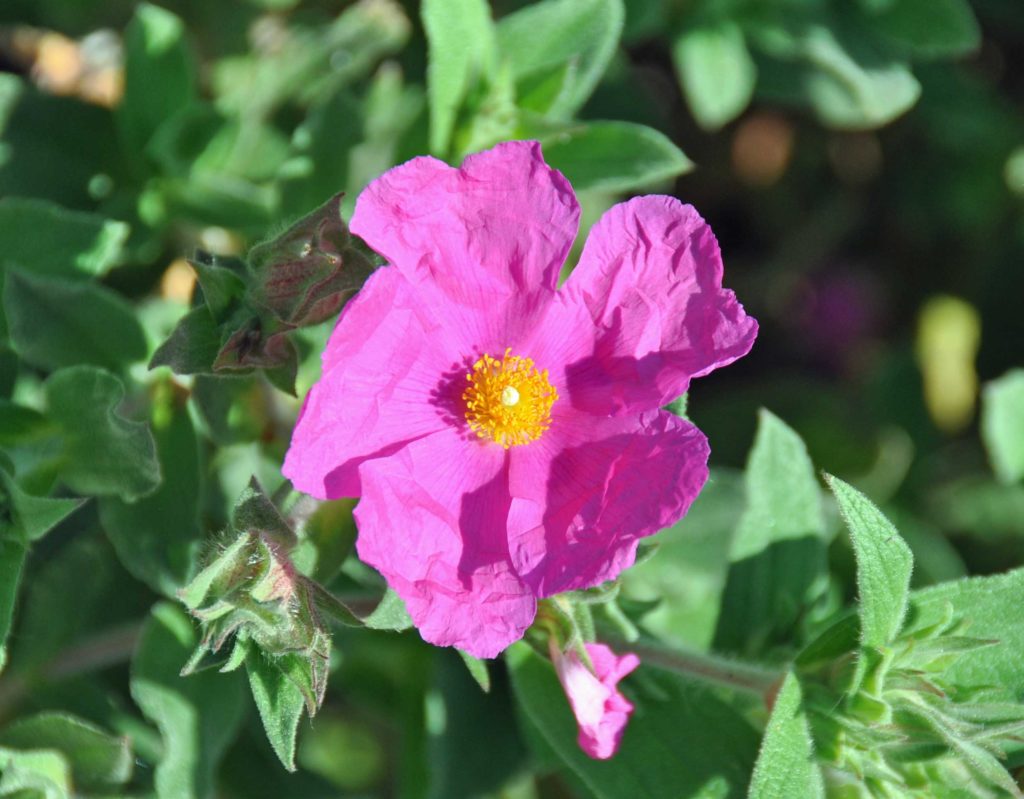
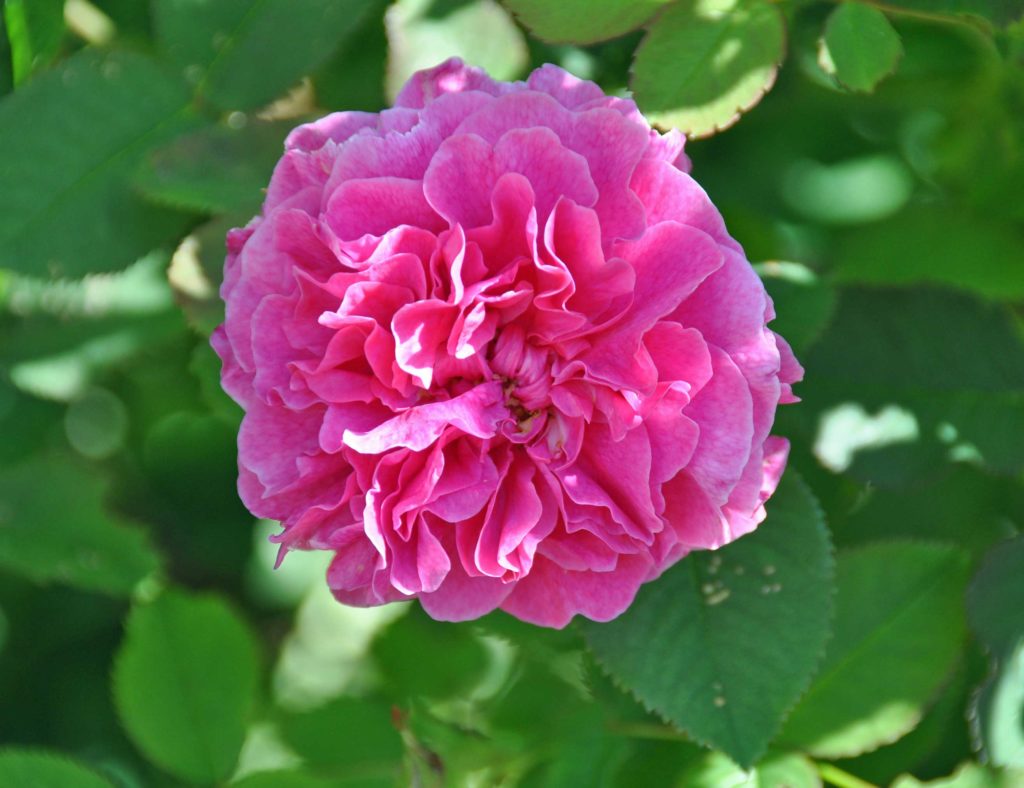
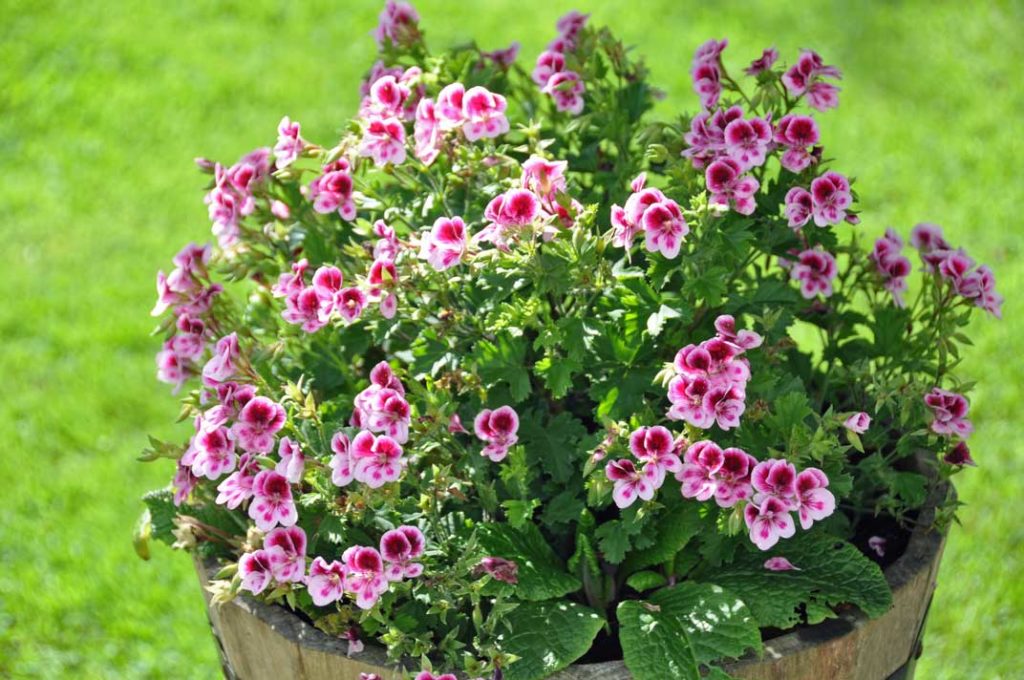
And down near the door underneath the clematis are the later flowering armeria (thrift).
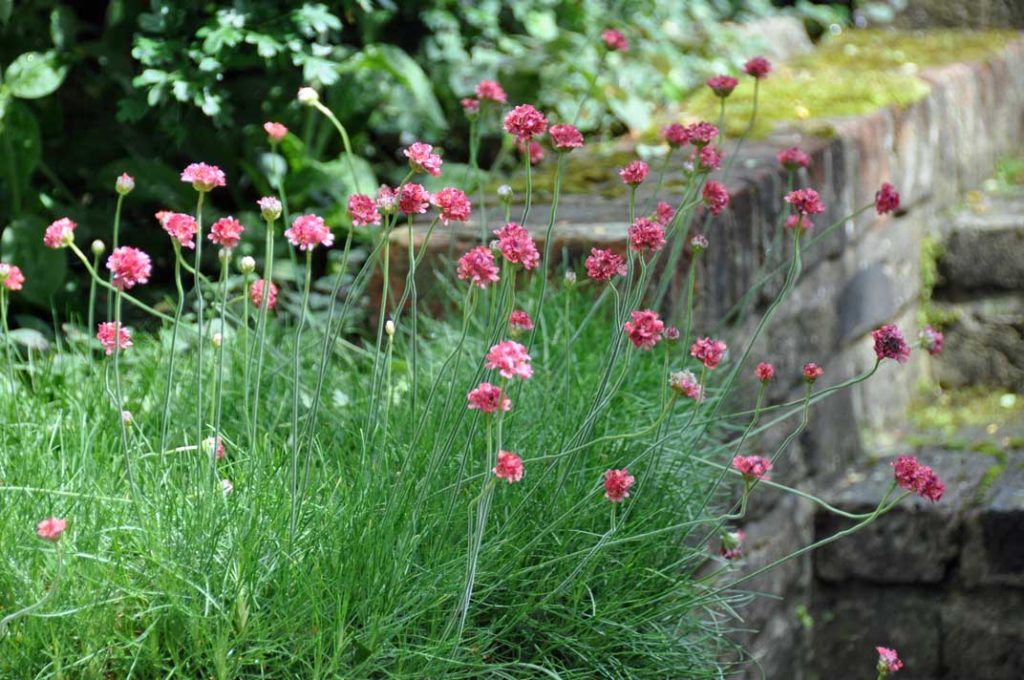
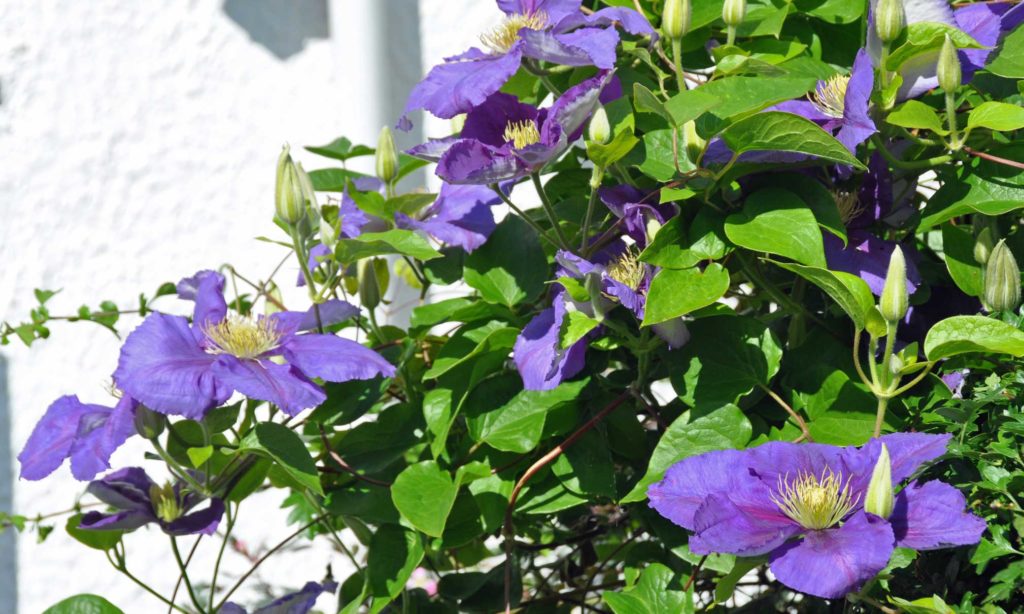
The shady garden has gone from a dark barren wasteland to a bit of an overgrown jungle. The pink geraniums are taking over.
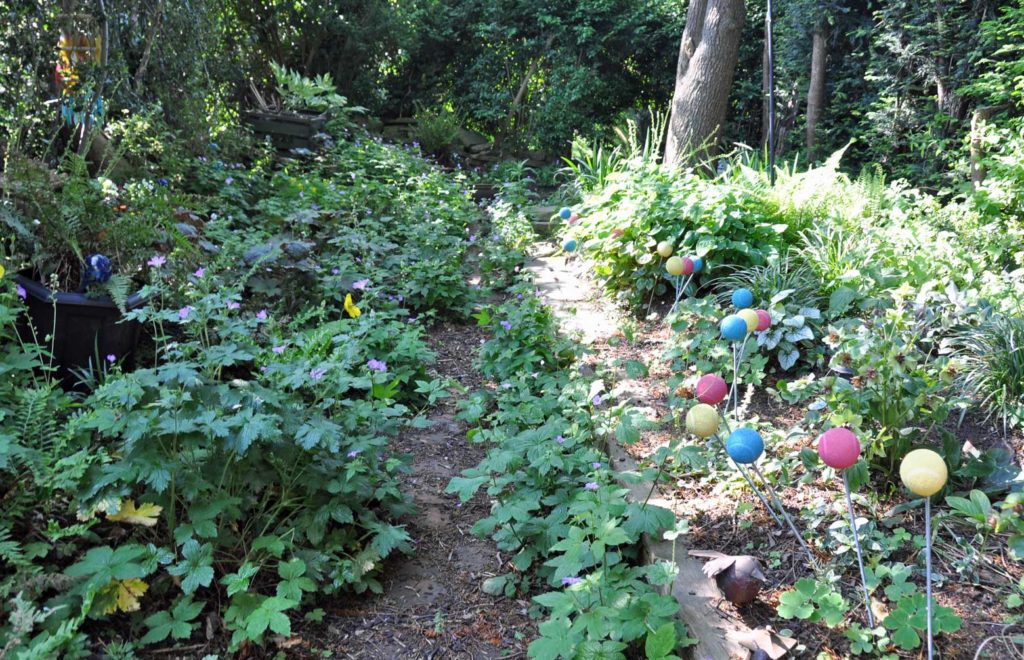
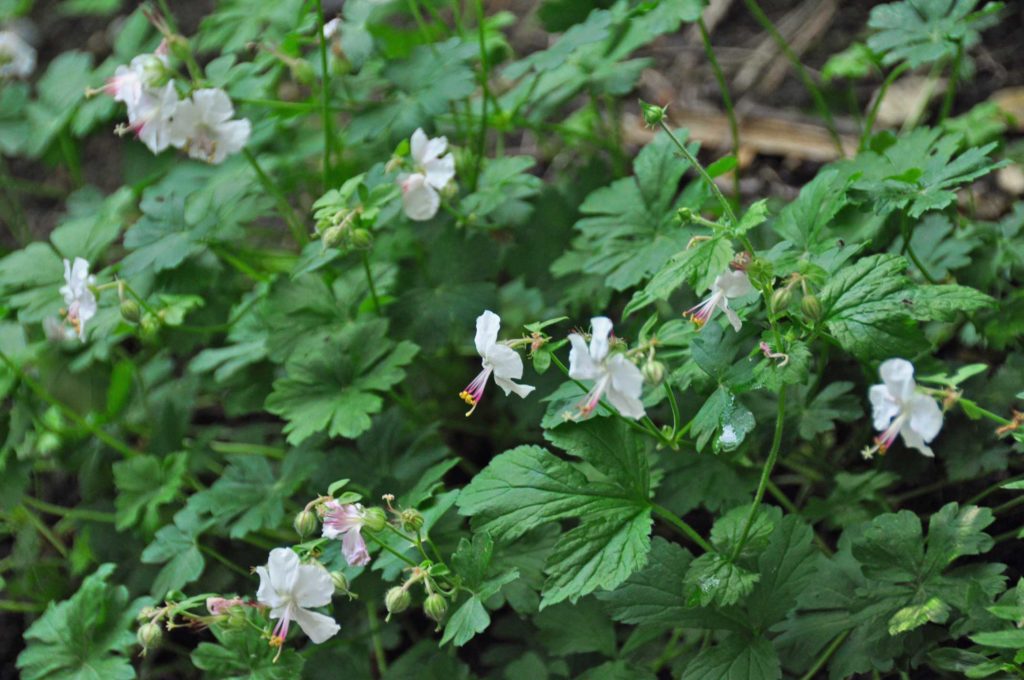
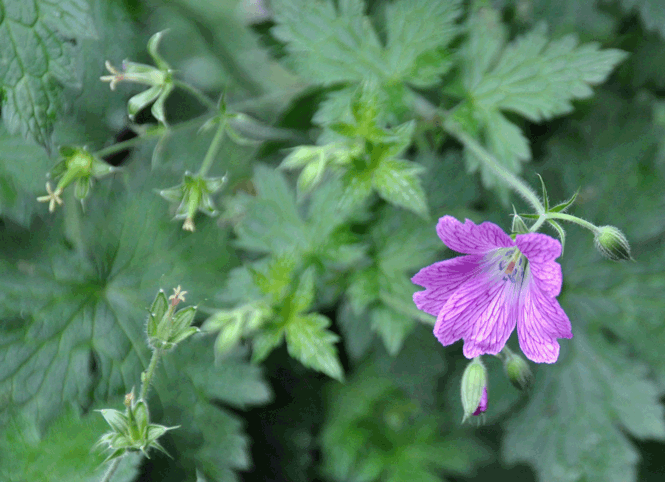
Iris foetidissima is flowering but they’re less than spectacular.
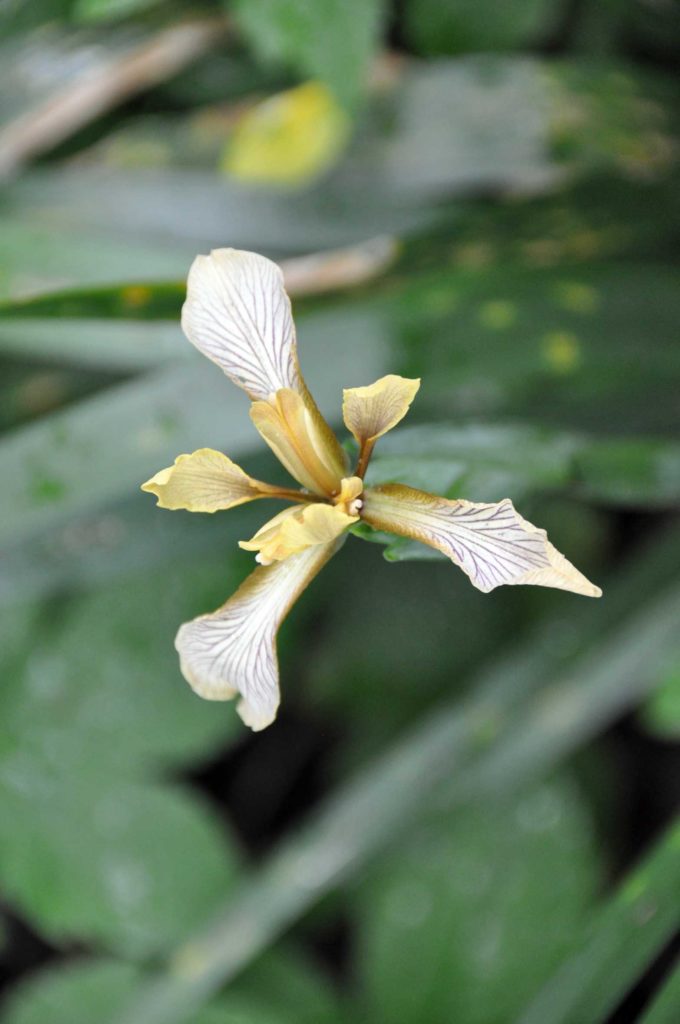
The “weeds” including the yellow poppy is by far prettier.
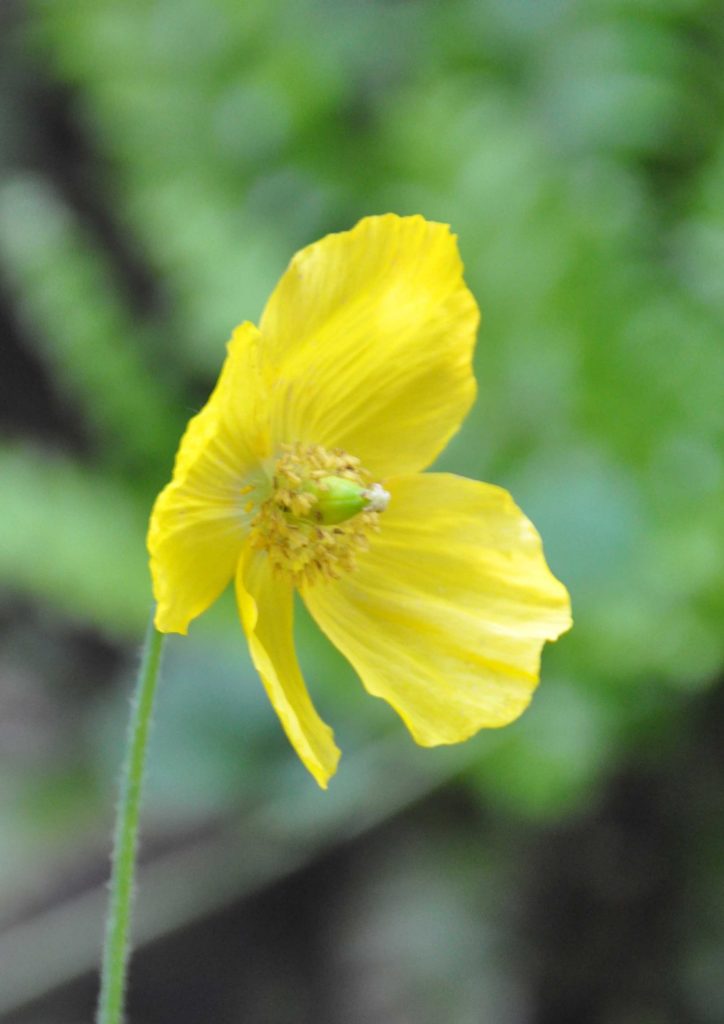
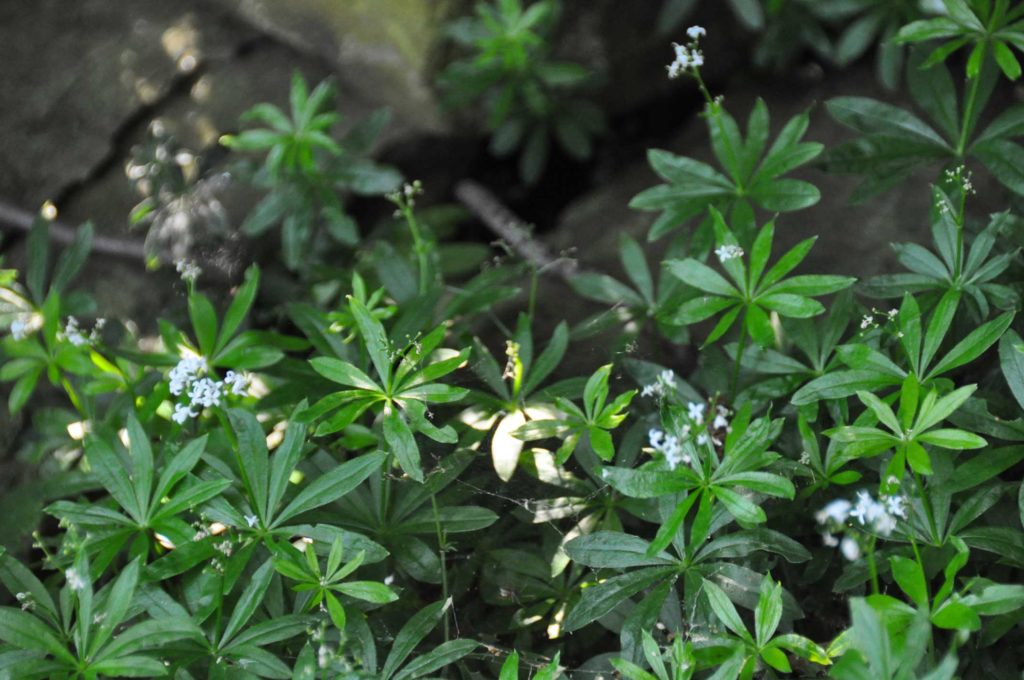
With every successful project, there has to be some disaster just in case I get too happy. How can two identical fatsia plants, in tubs right next to each other have such opposing outcomes. The black grass seems fine in both boxes. I shall have to plant the pot grown fatsia in the empty one.
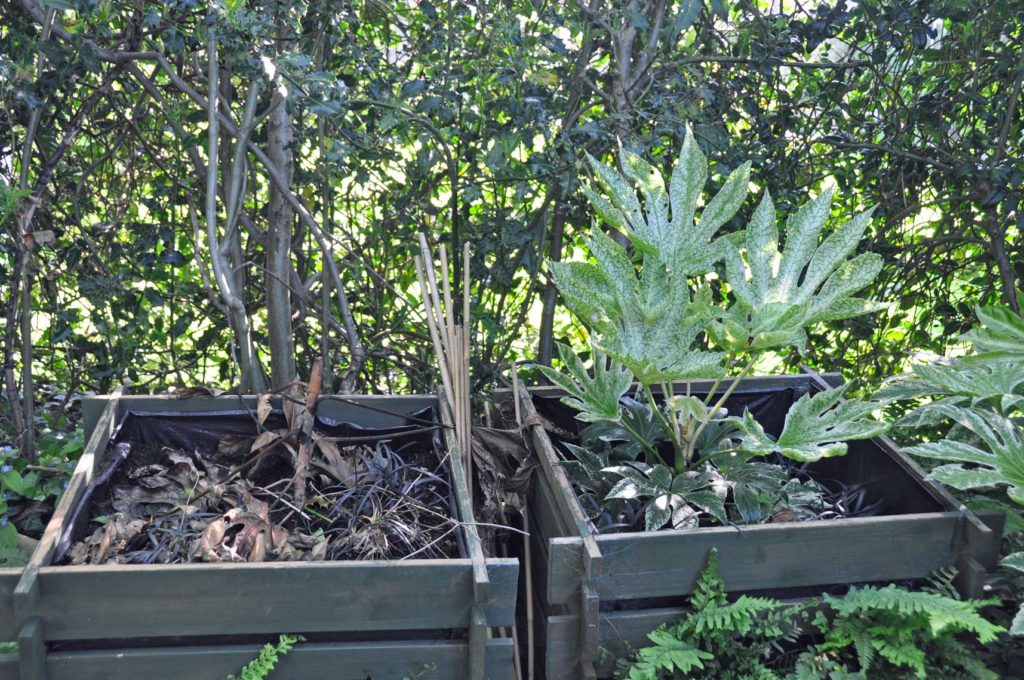
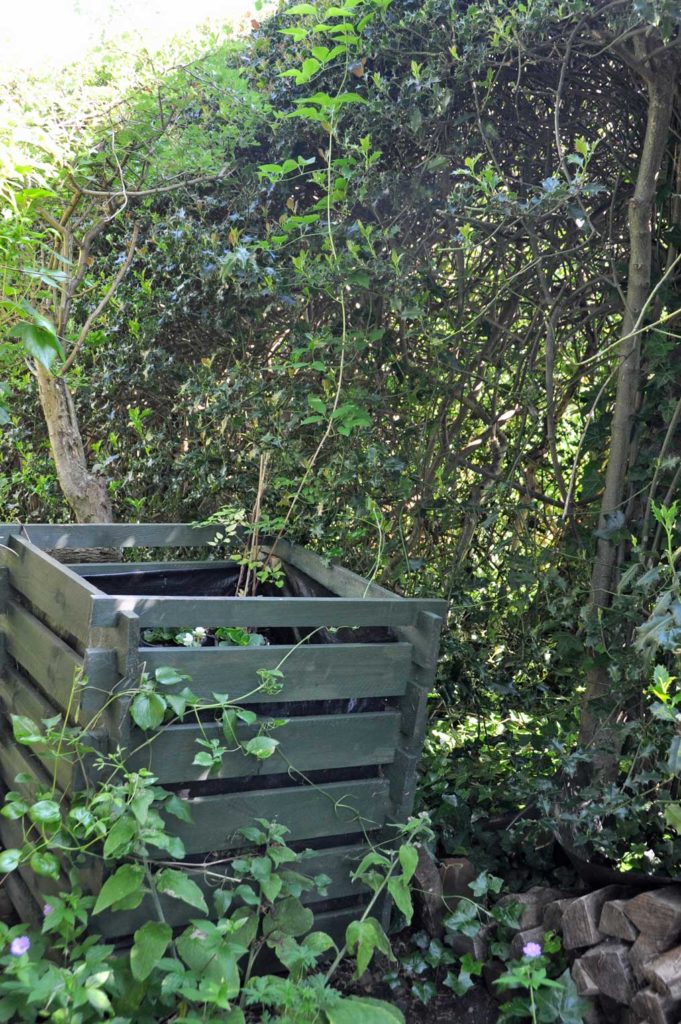
I decided to plant in a couple of clematis plants in the final bin planter. The leaf mould is still breaking down so the level of the soil is falling and will probably keep falling for a year or so. Until the compost is stable, planting up with another plant seems a bit of a waste. I’ll need to think of a cheerful plant that can cope with dappled shade, maybe a hydrangea or a rhododendron.
It seems that there’s always something to be done, even if my partner is adamant that none of the beds can be increased. Who knew gardens could be such fun?

